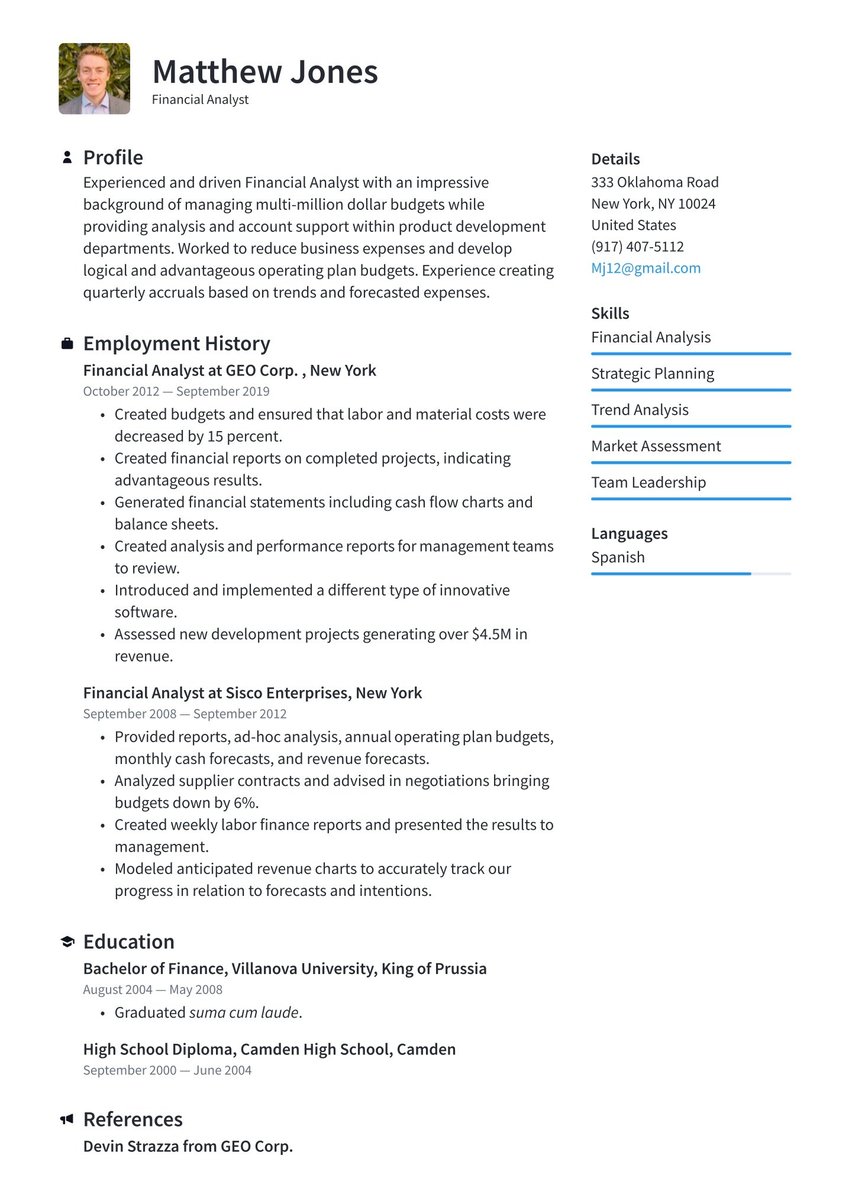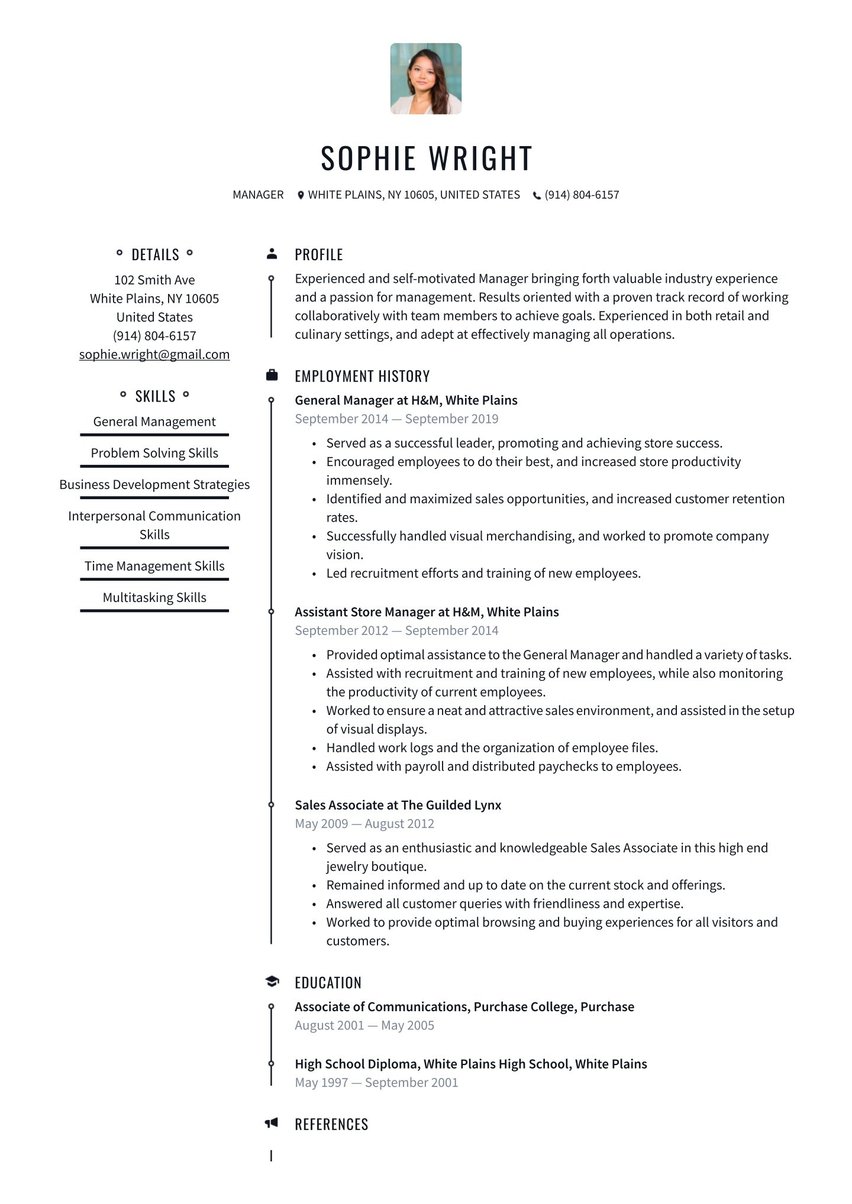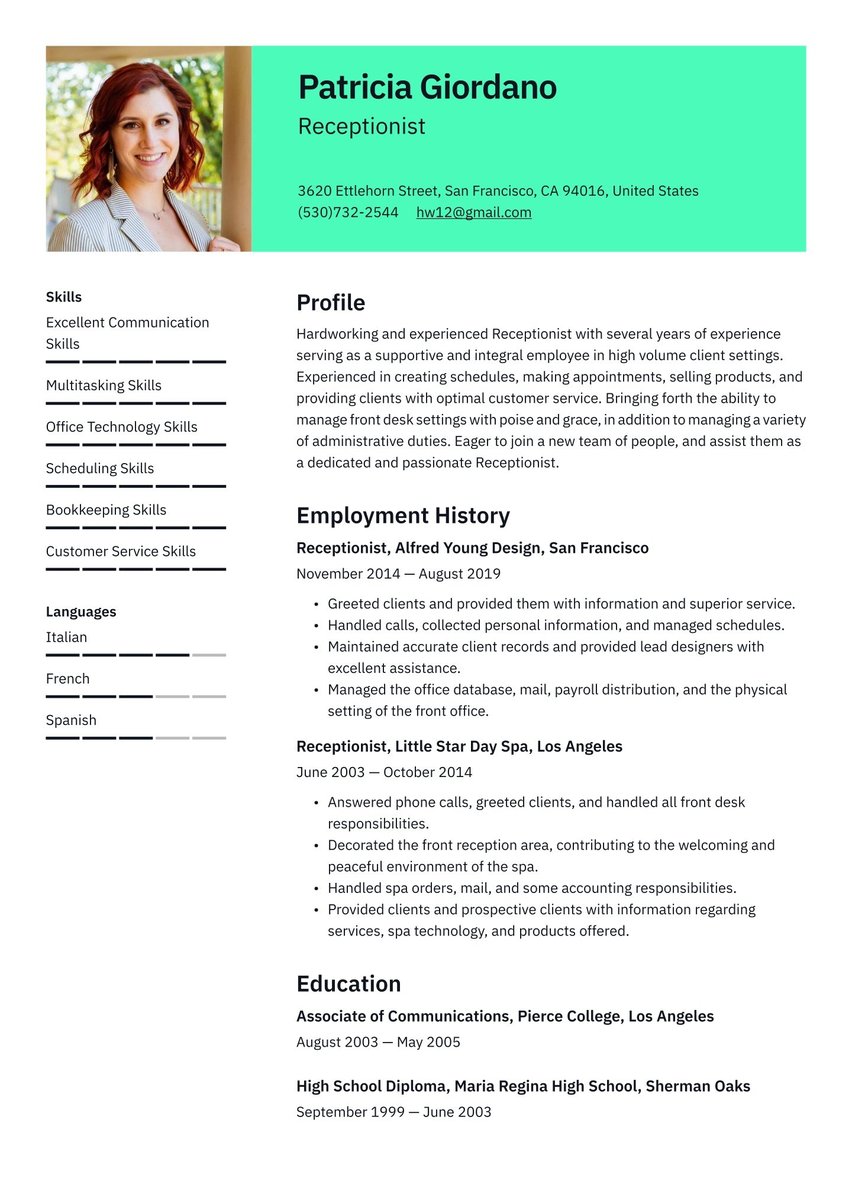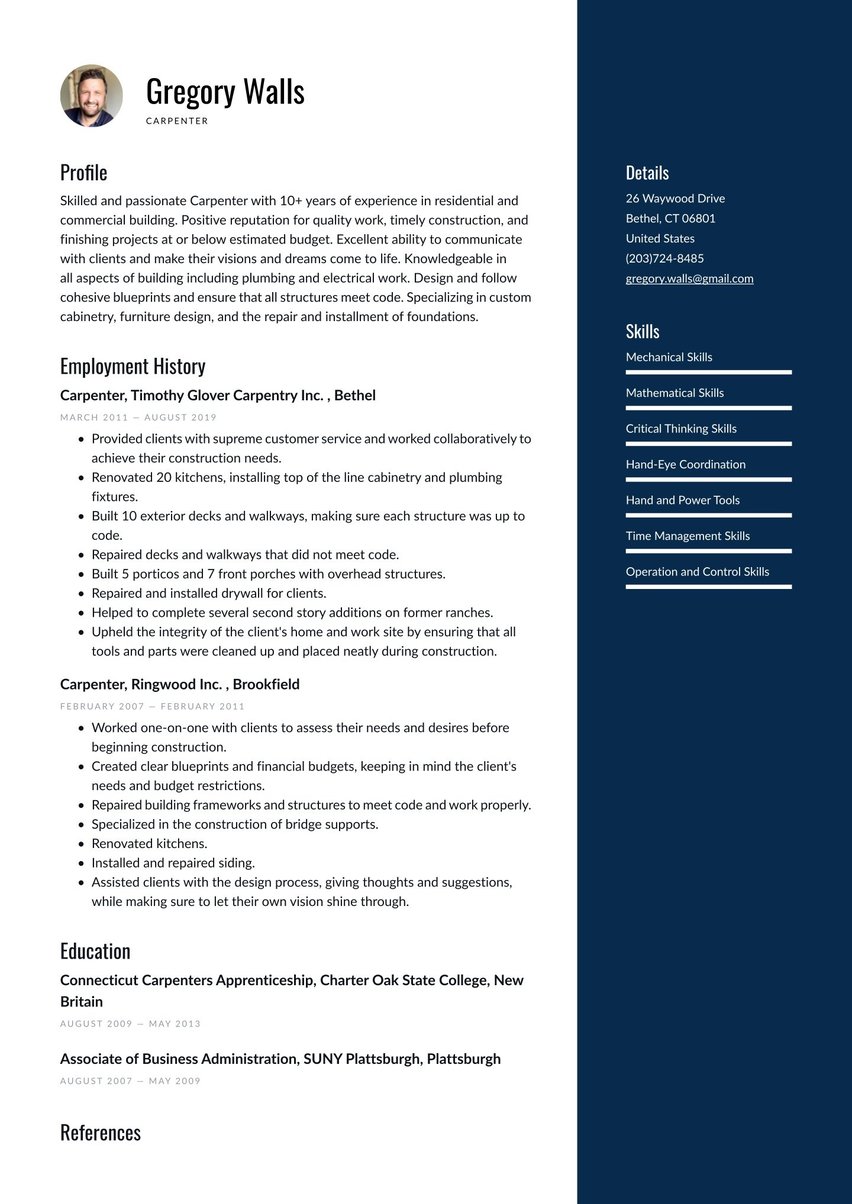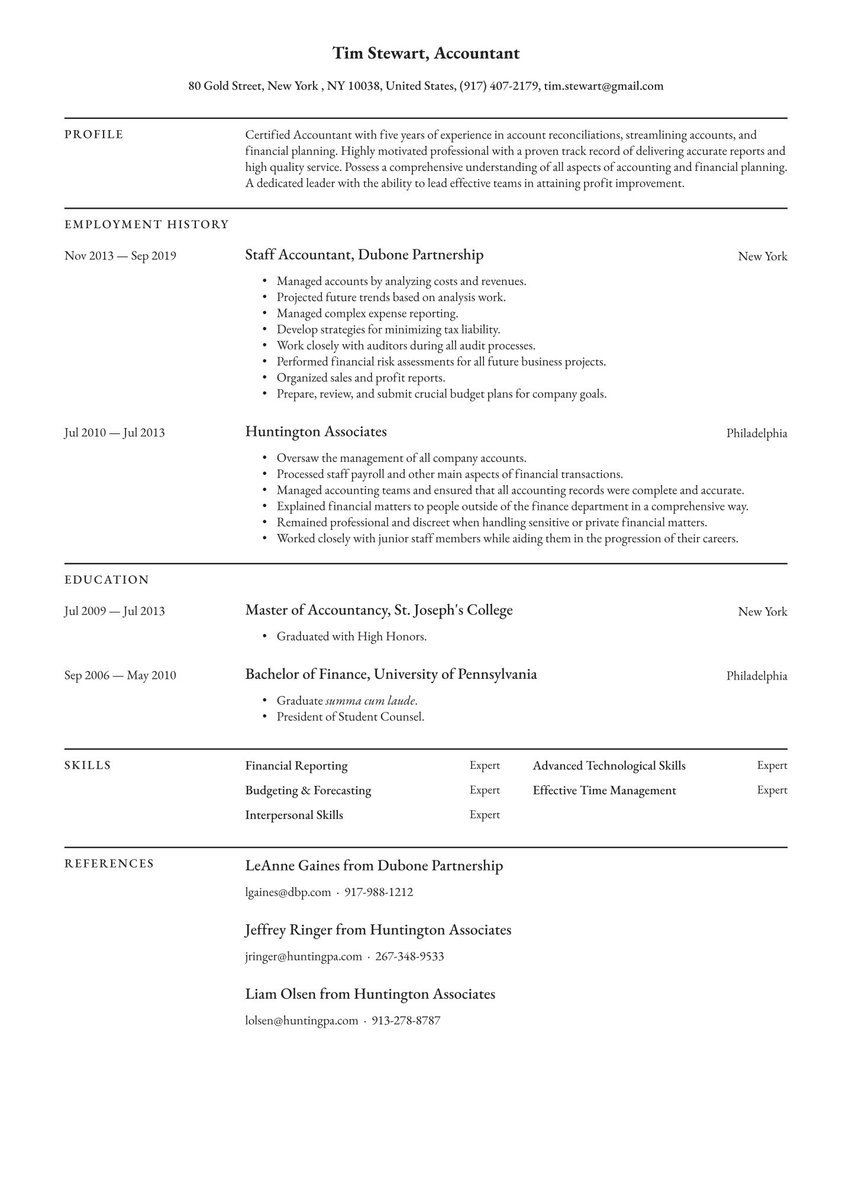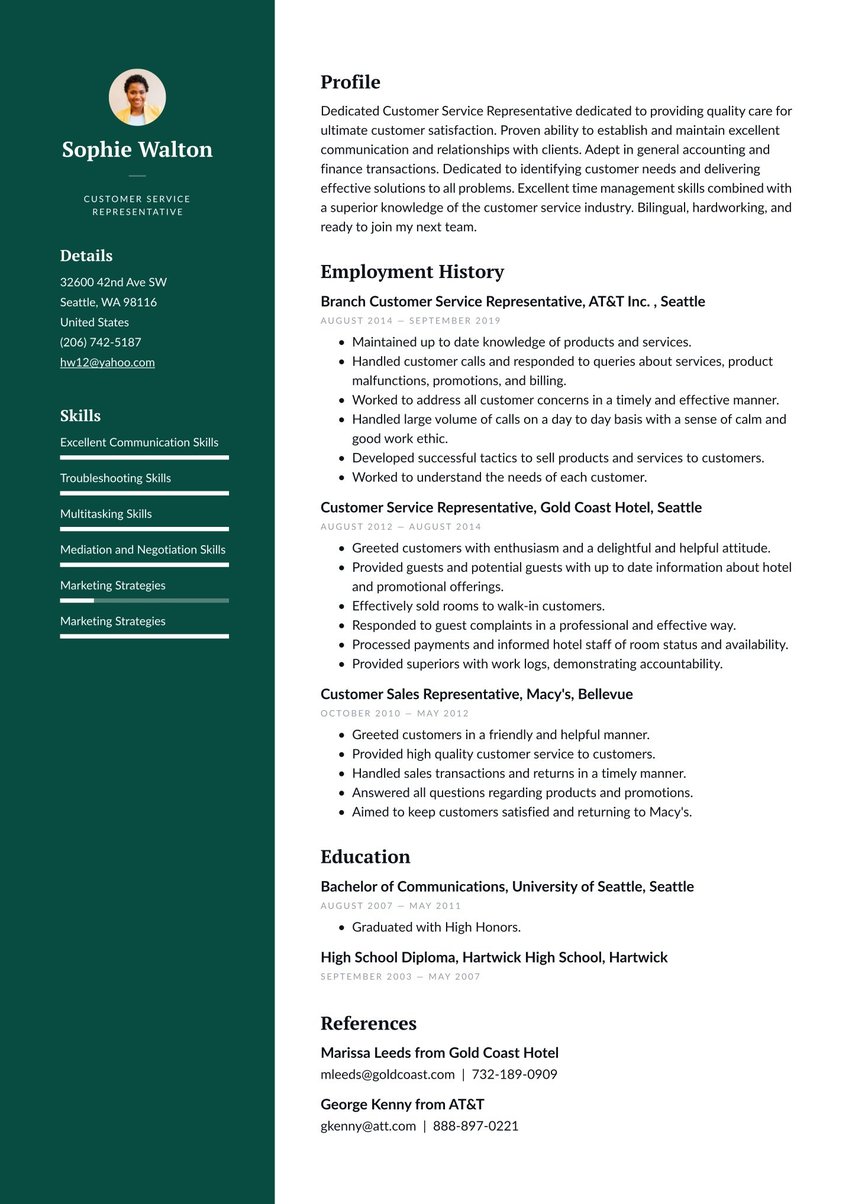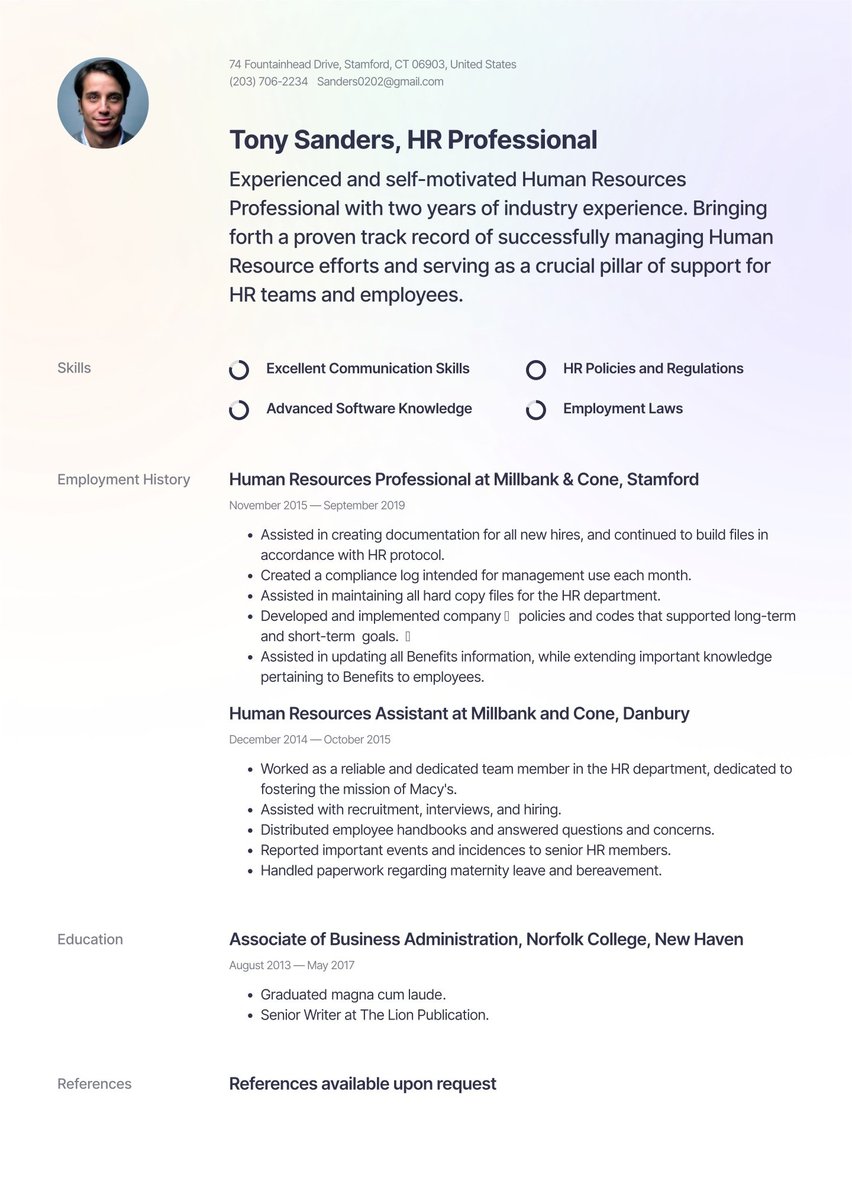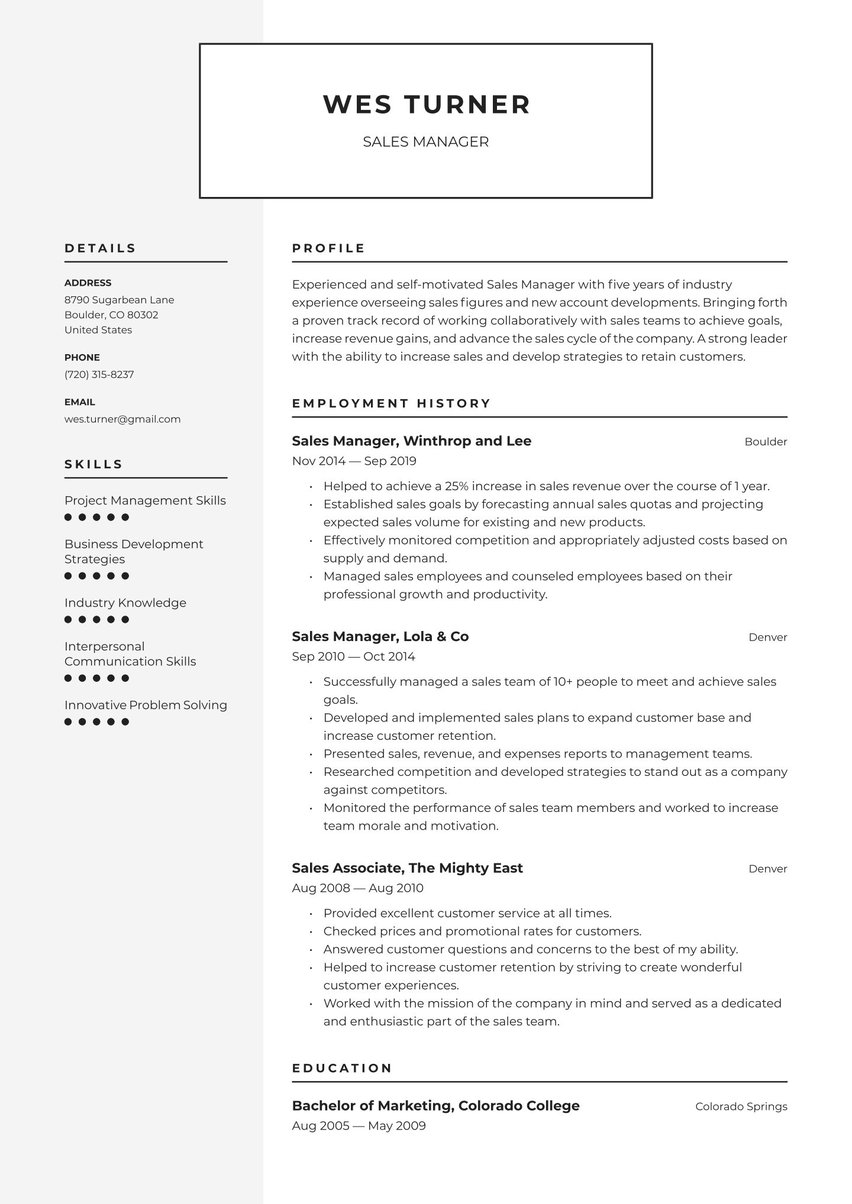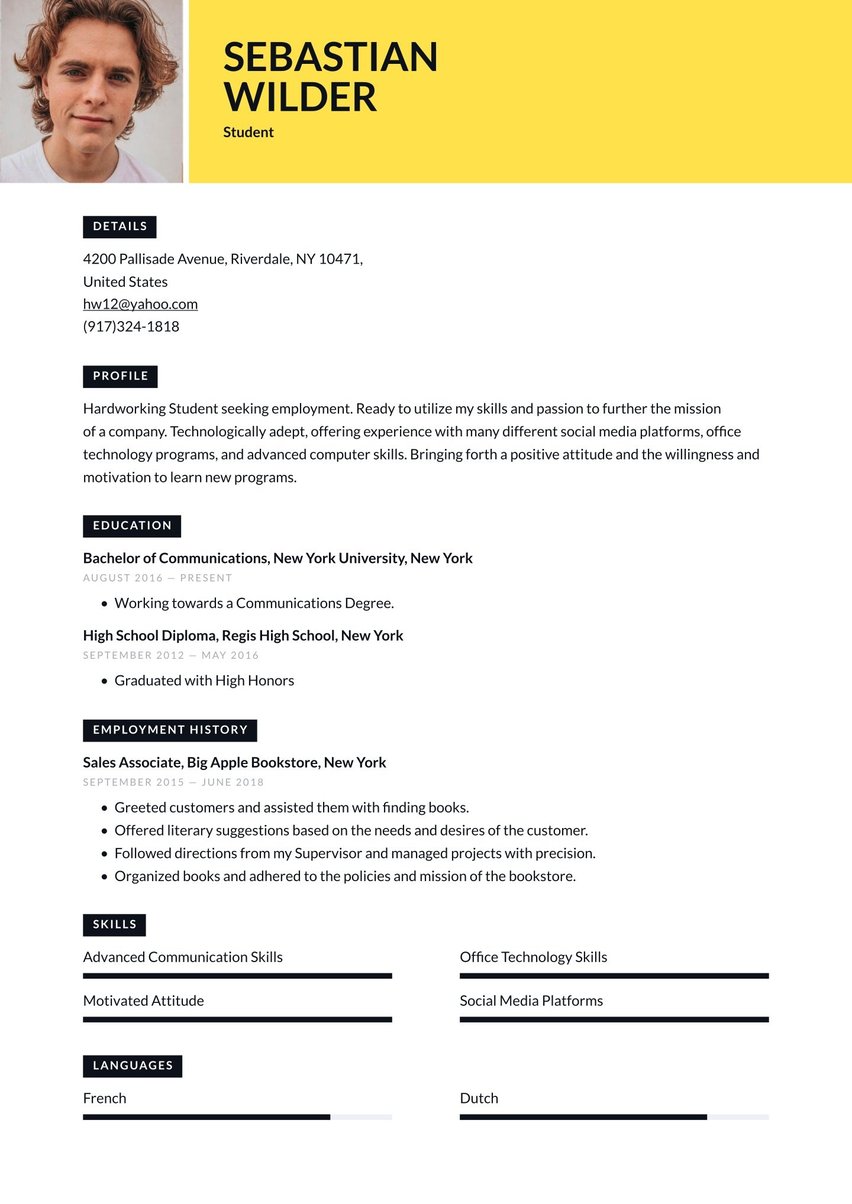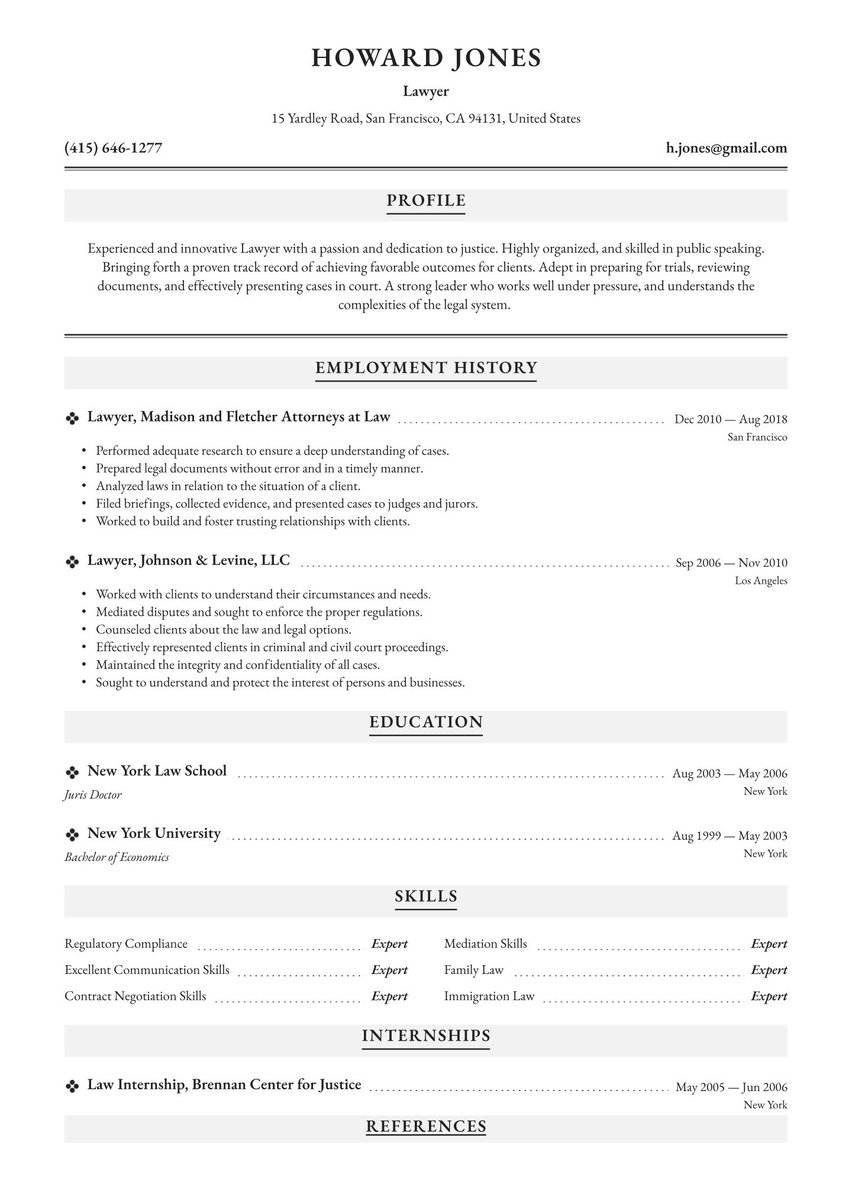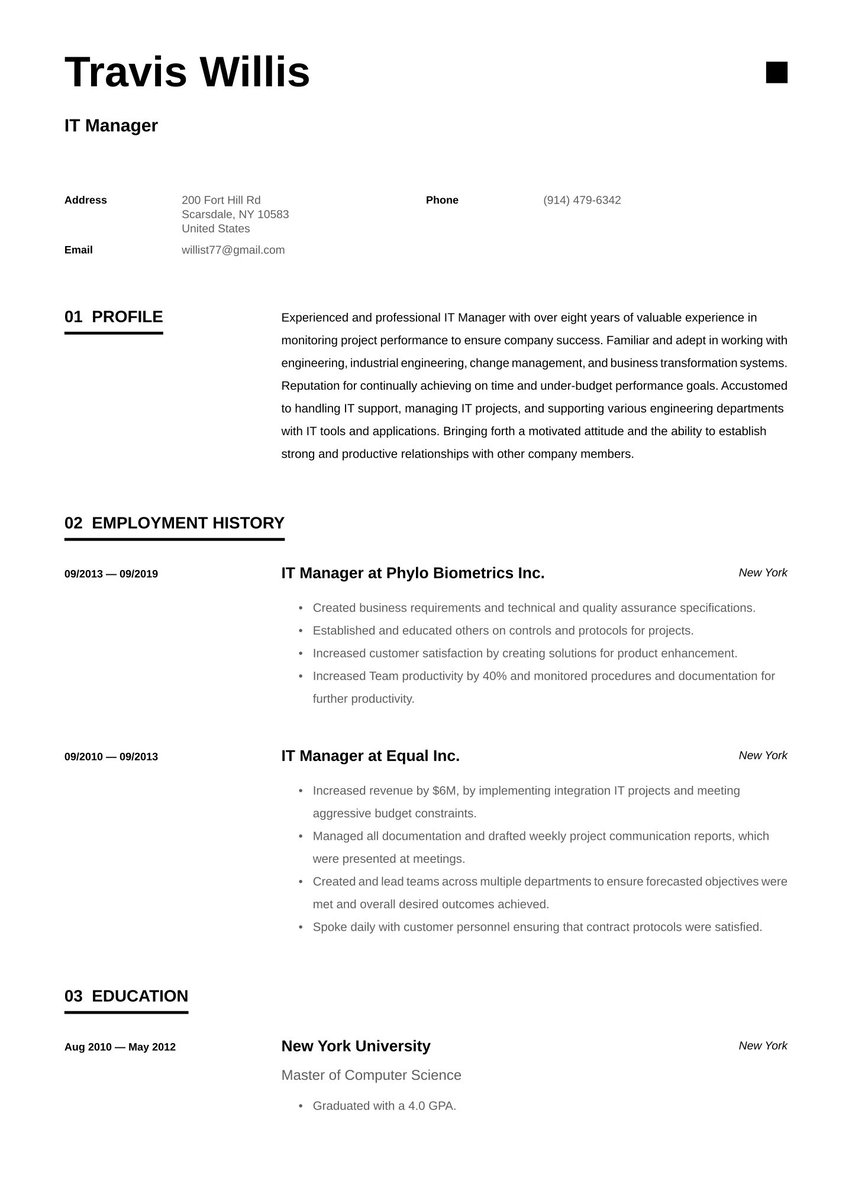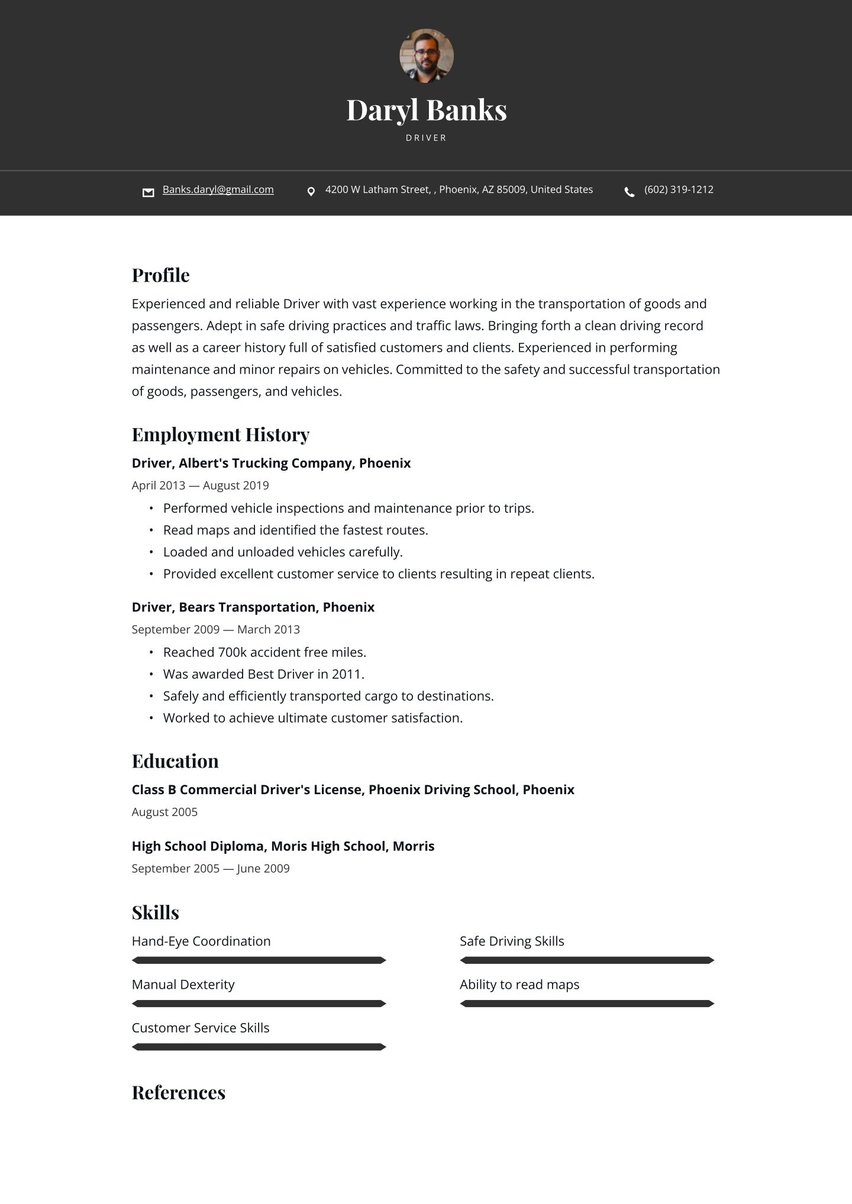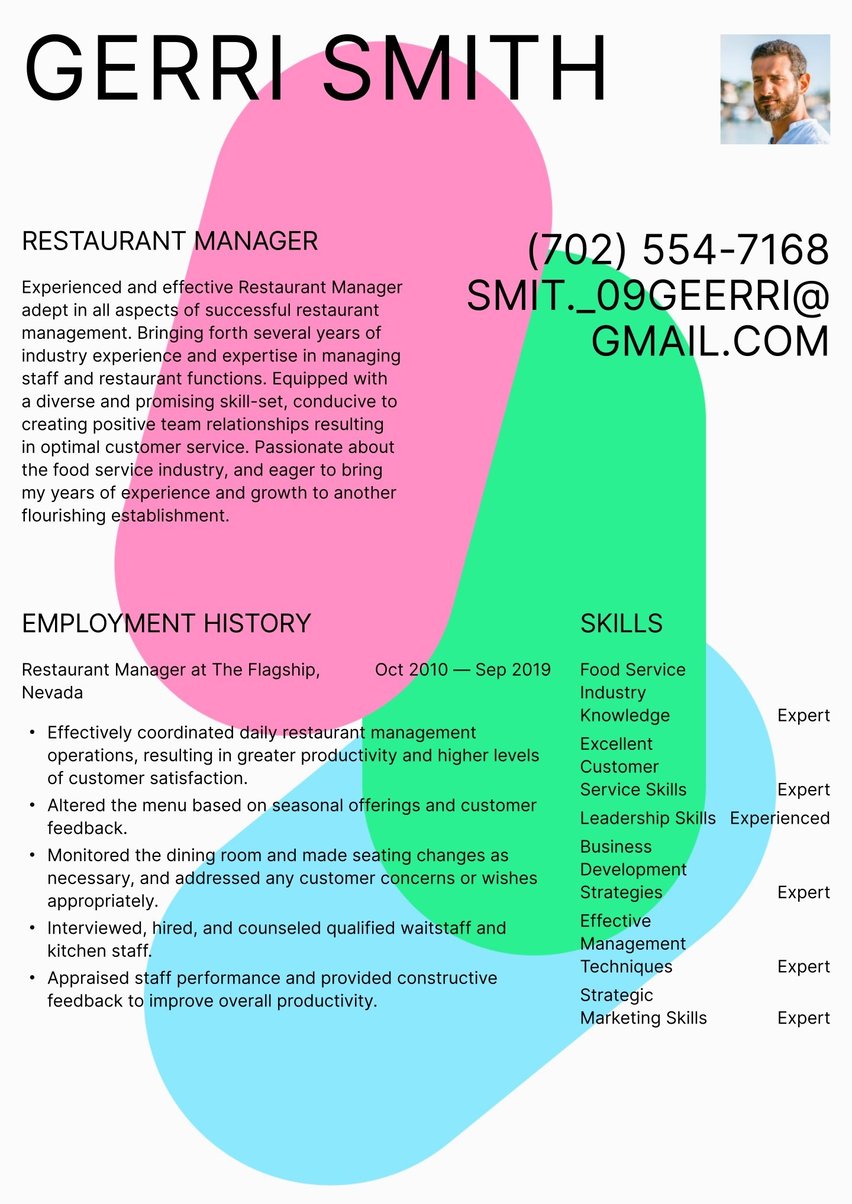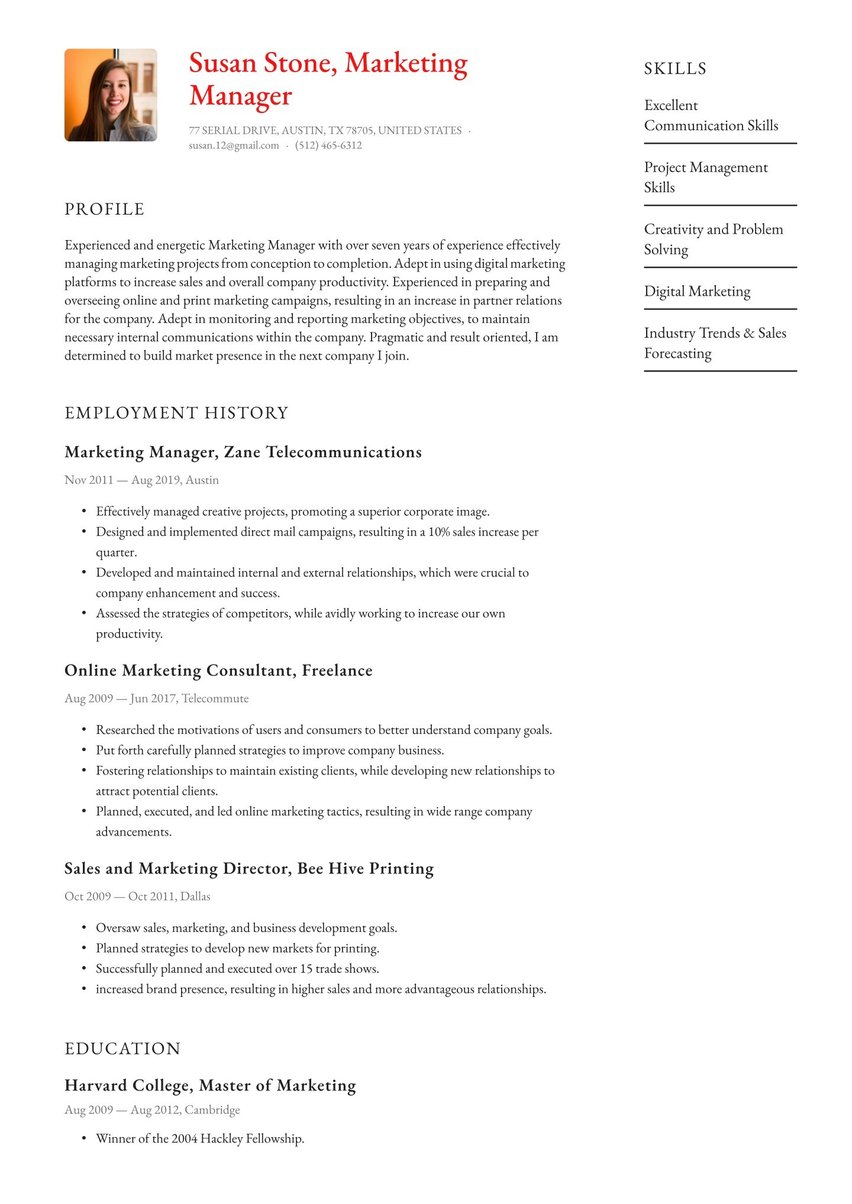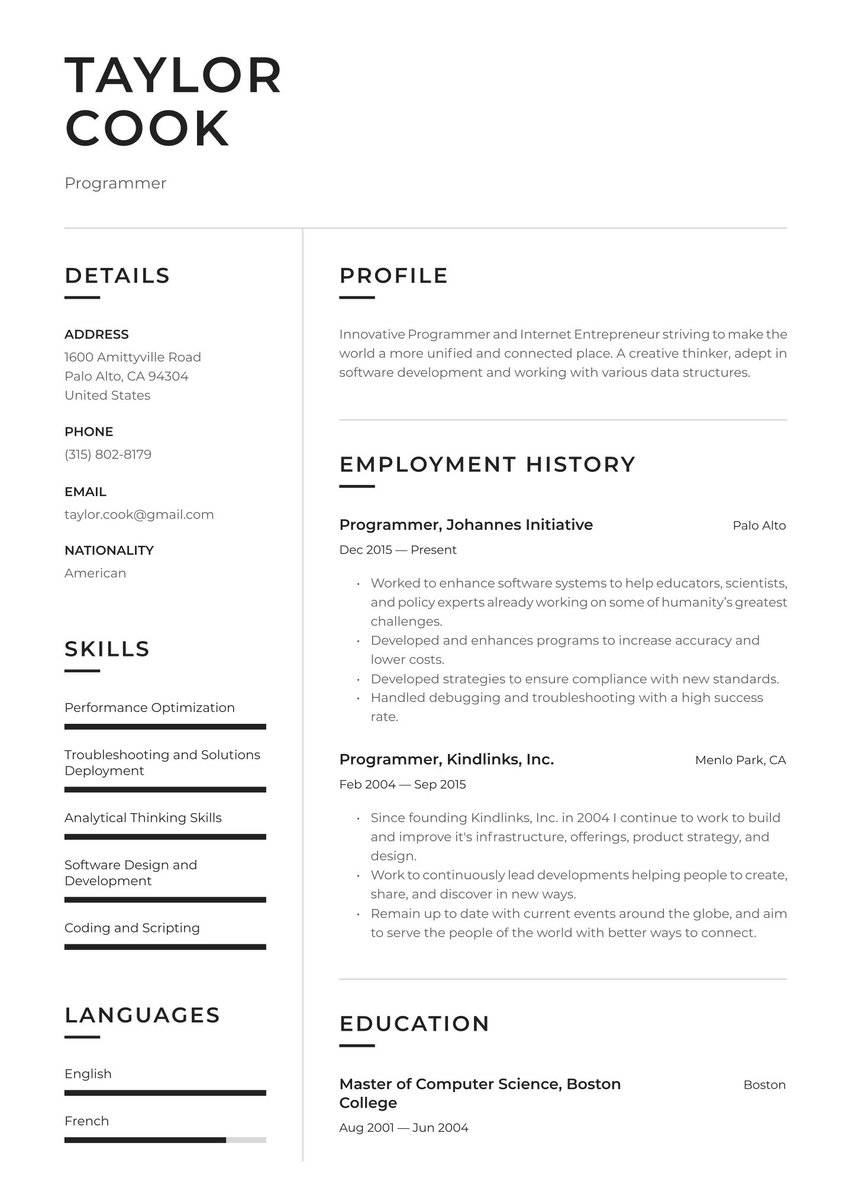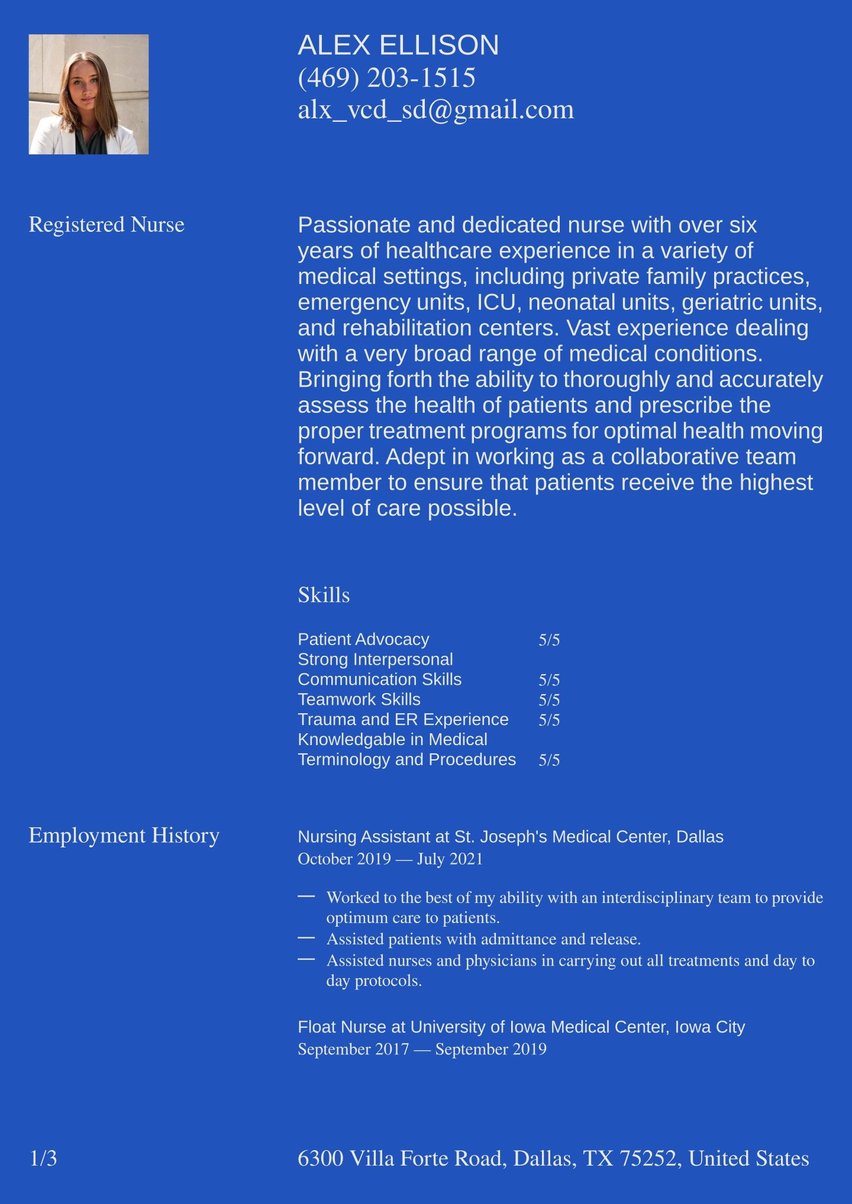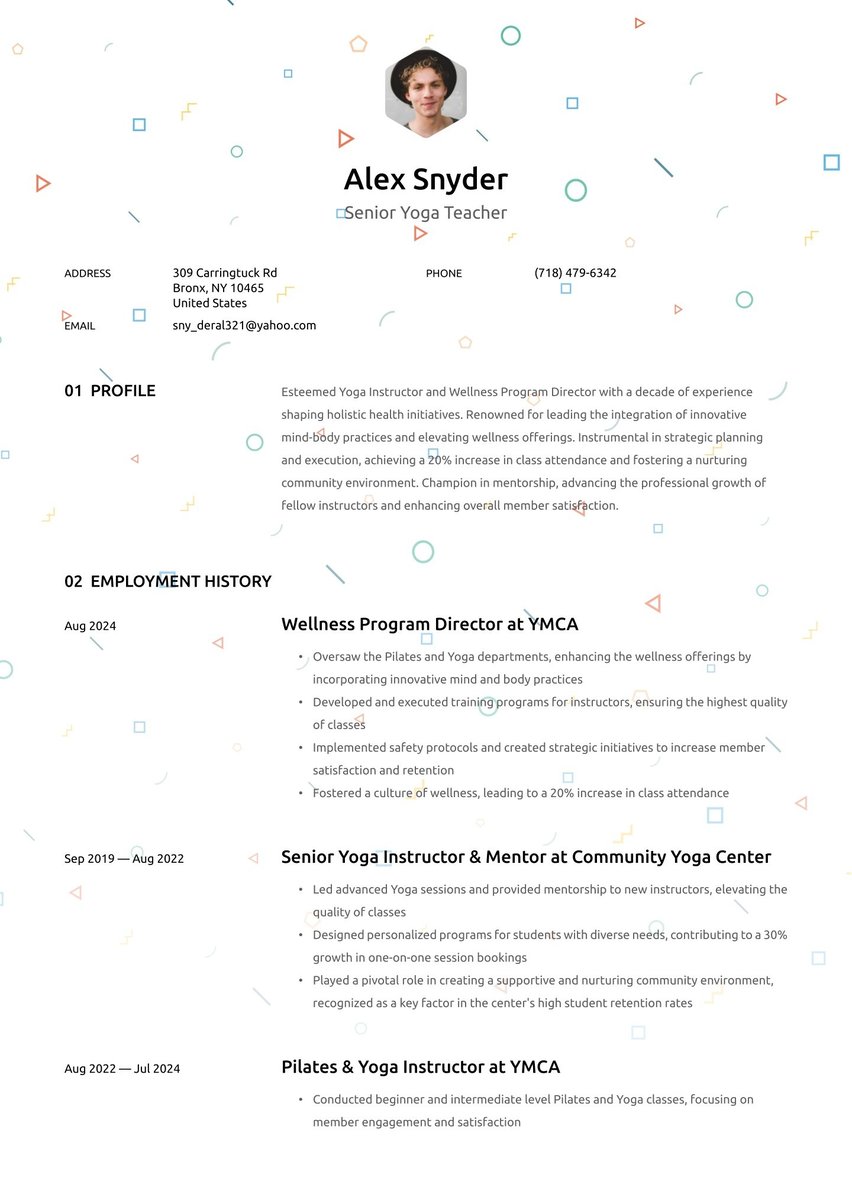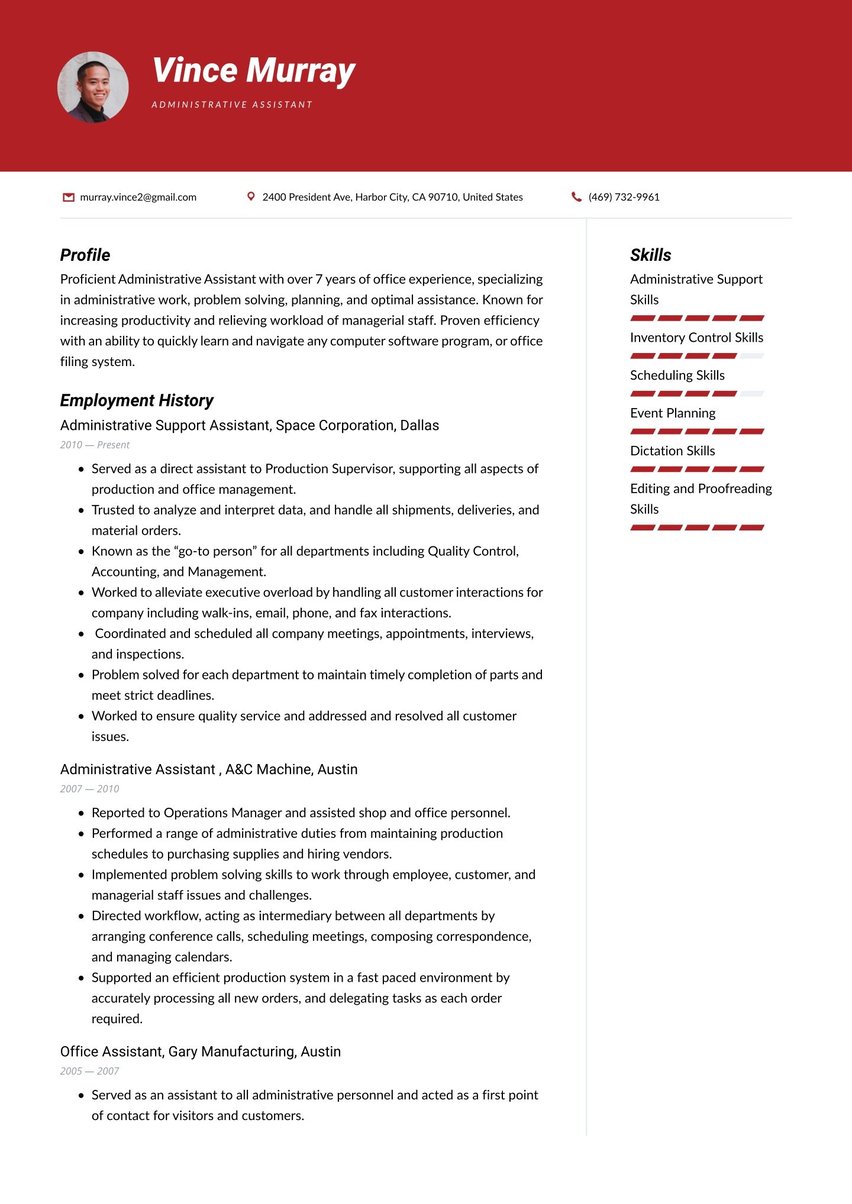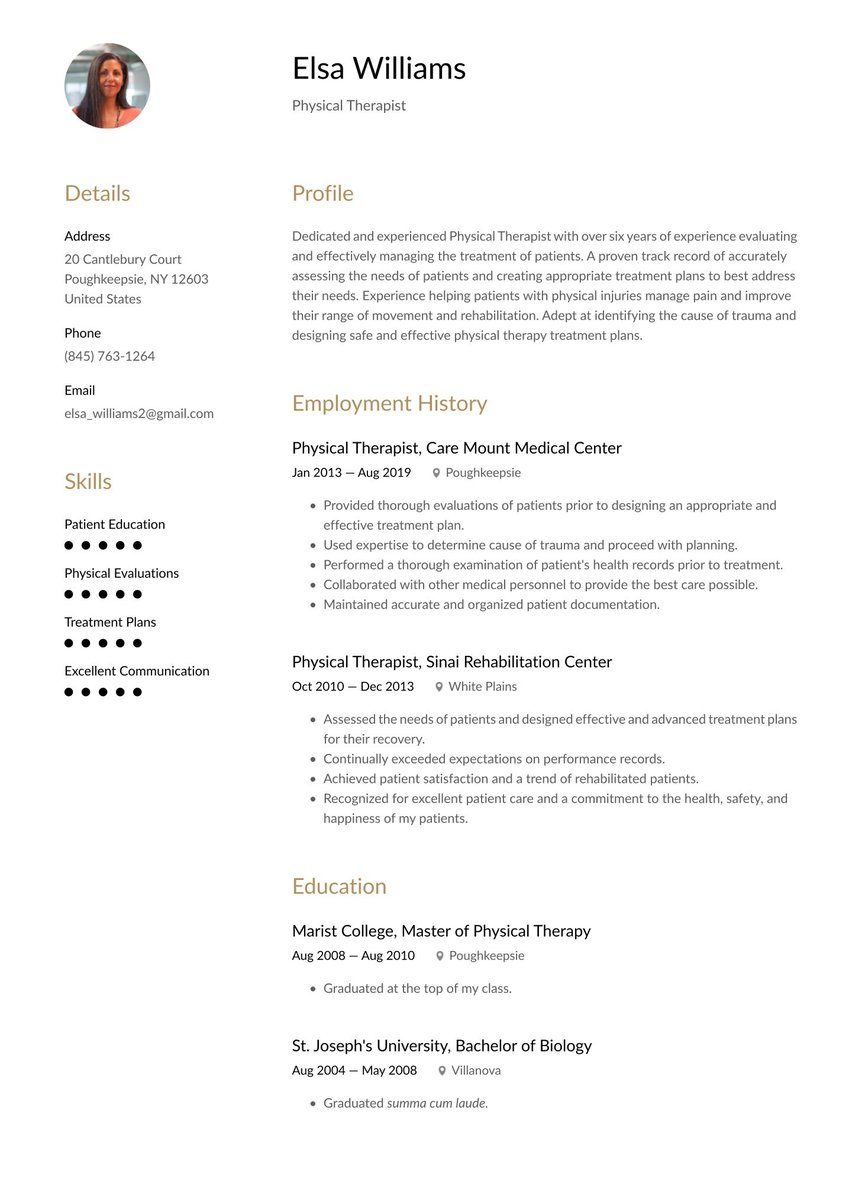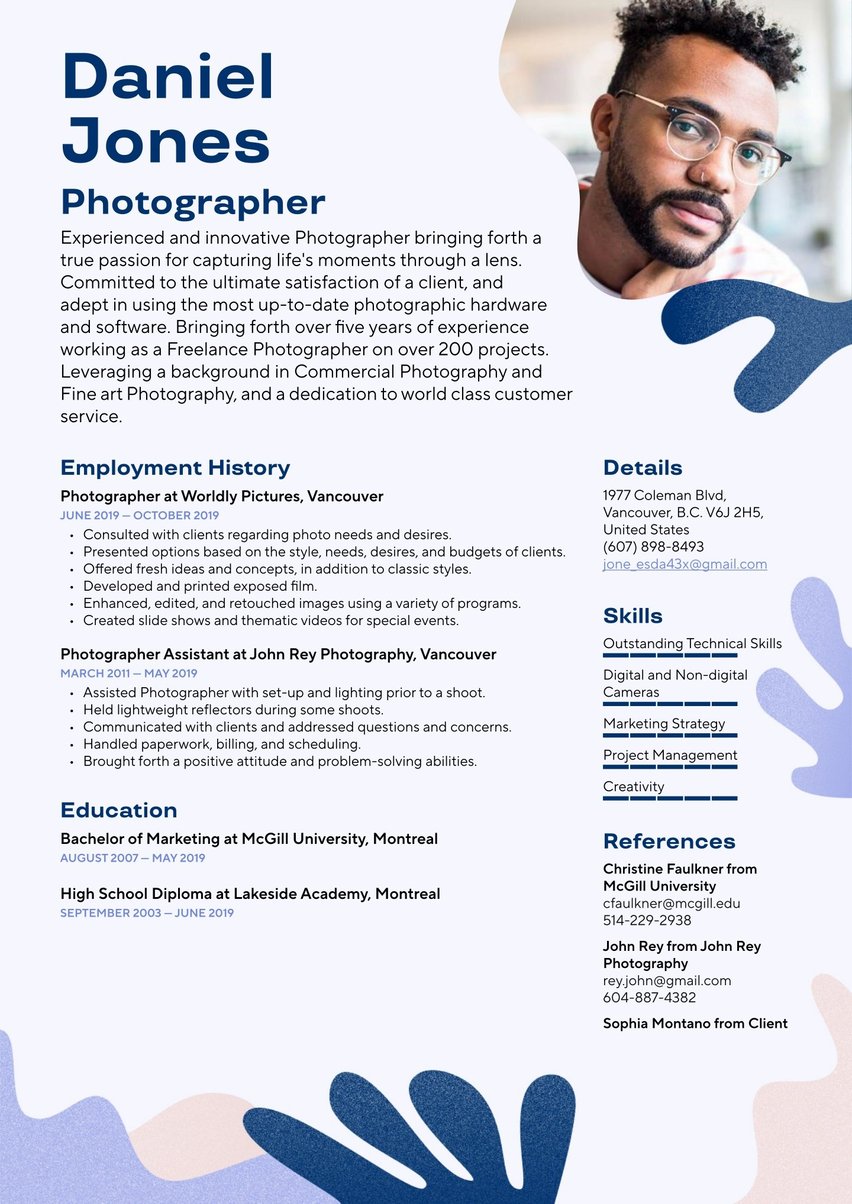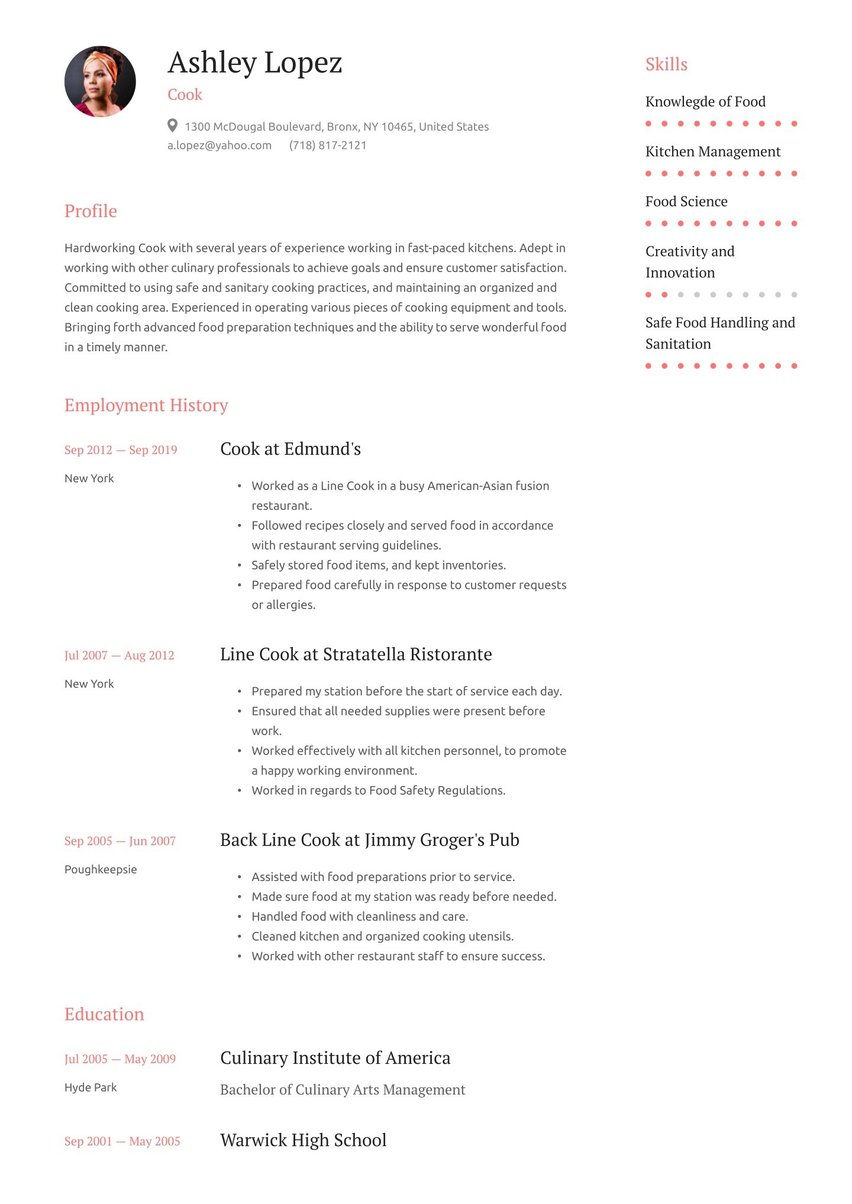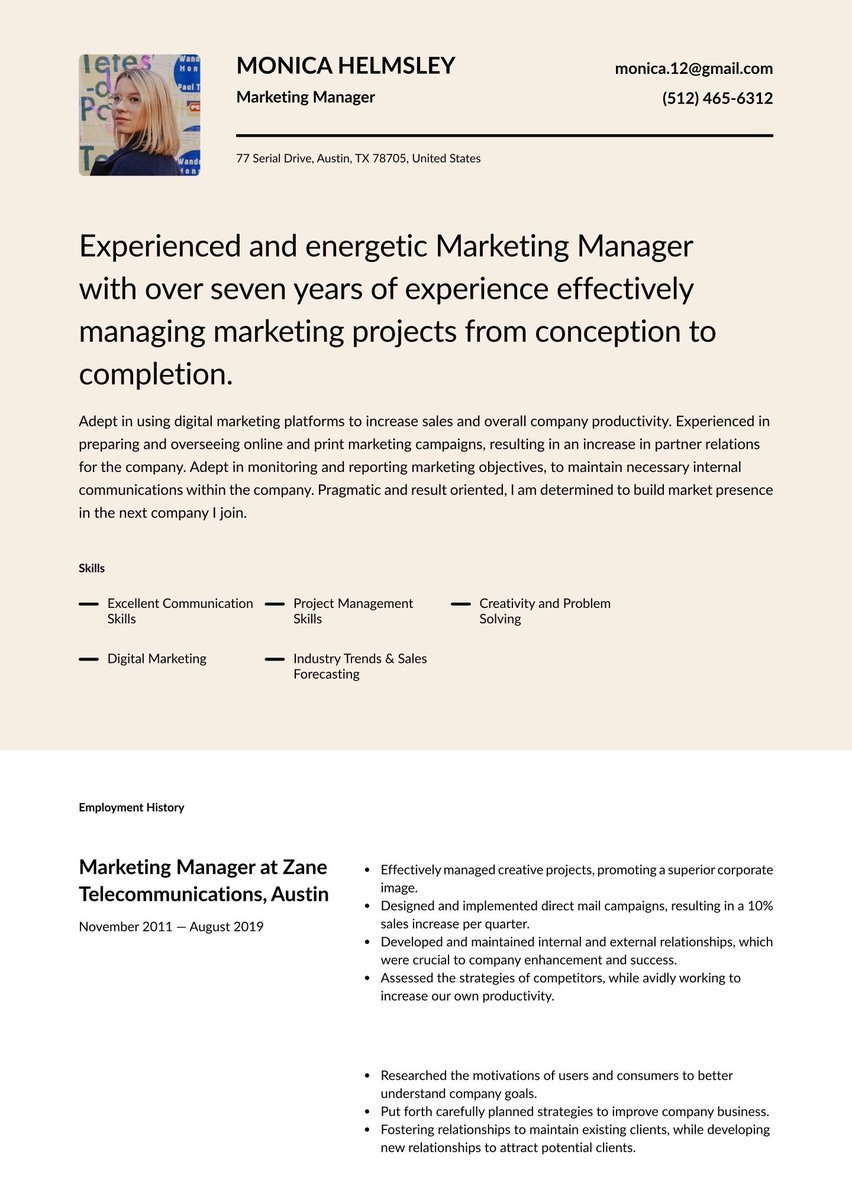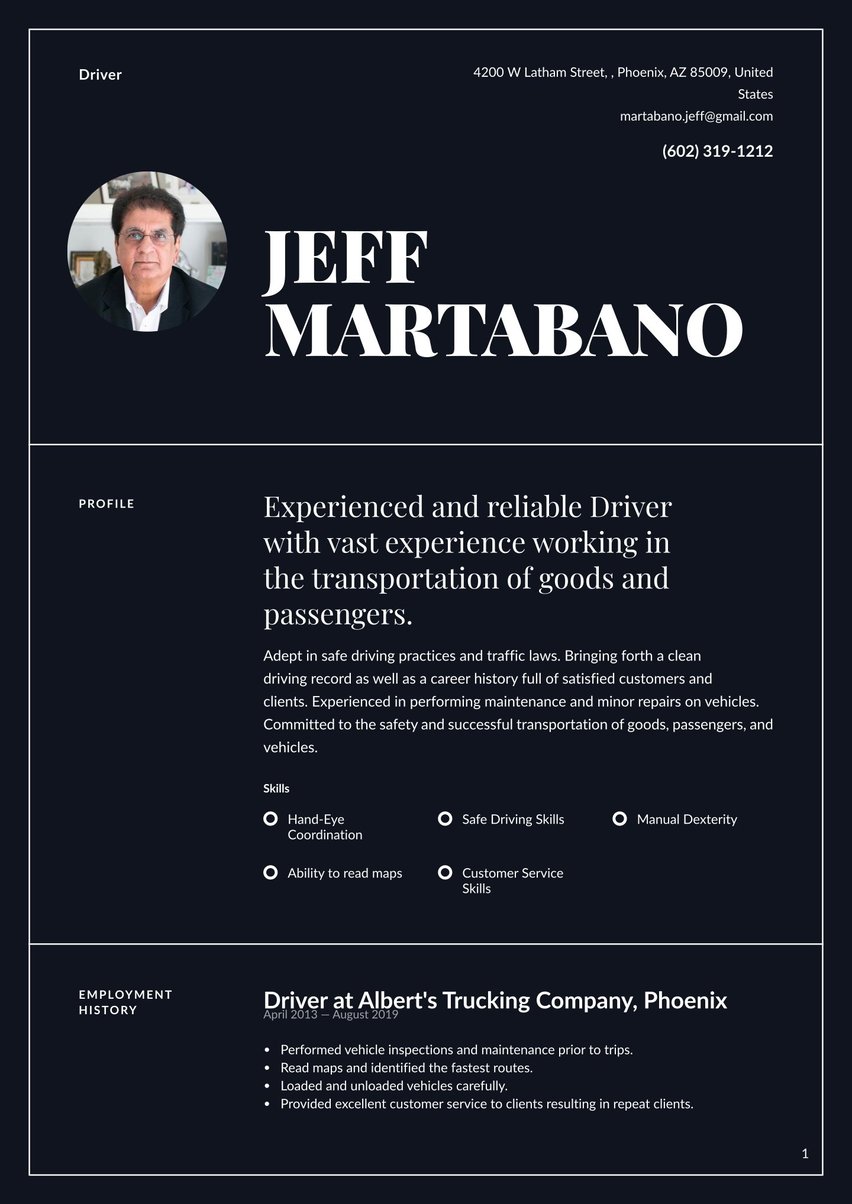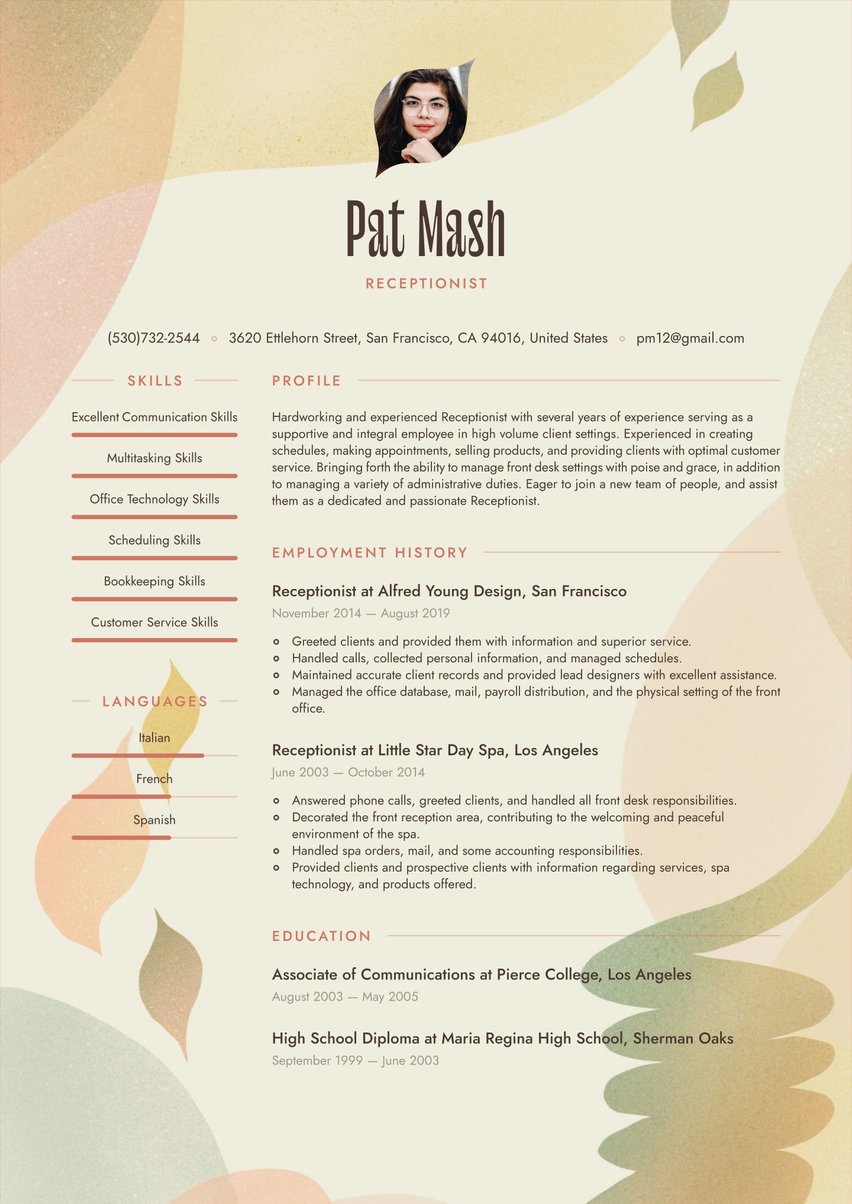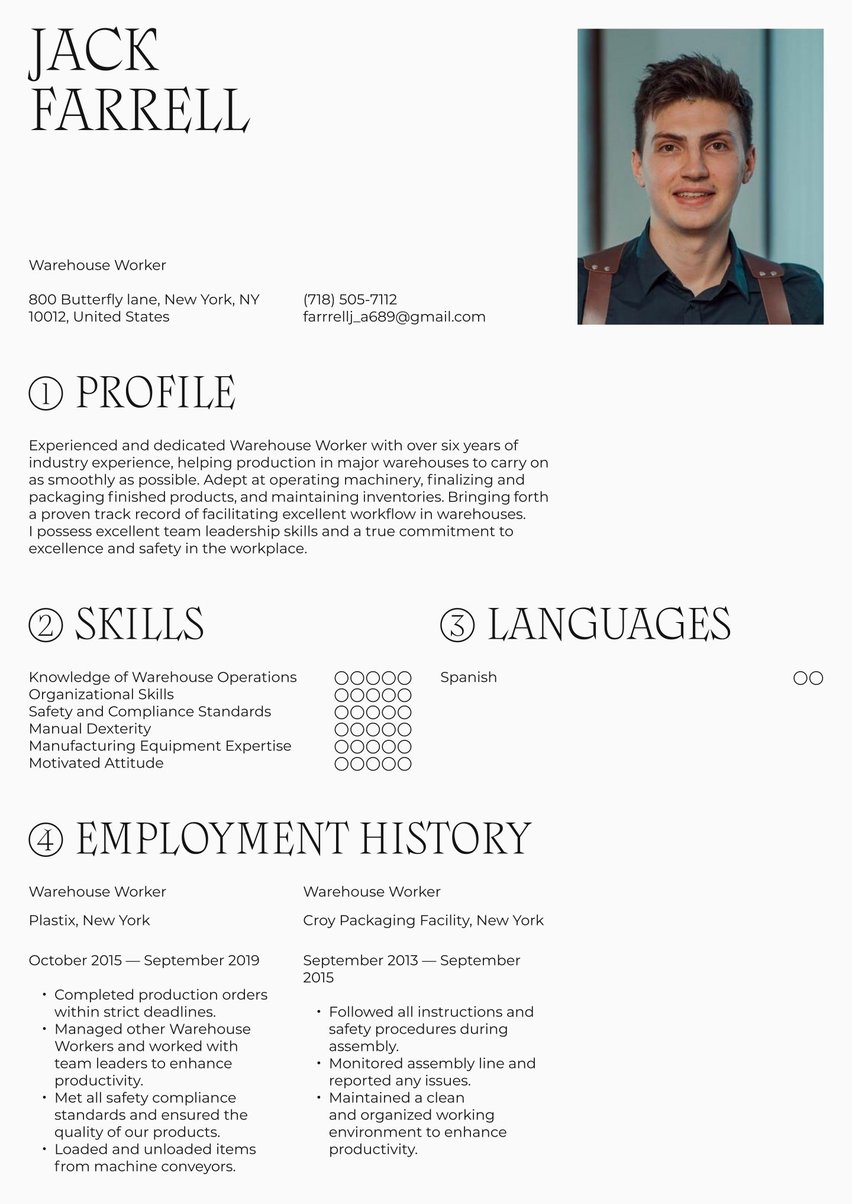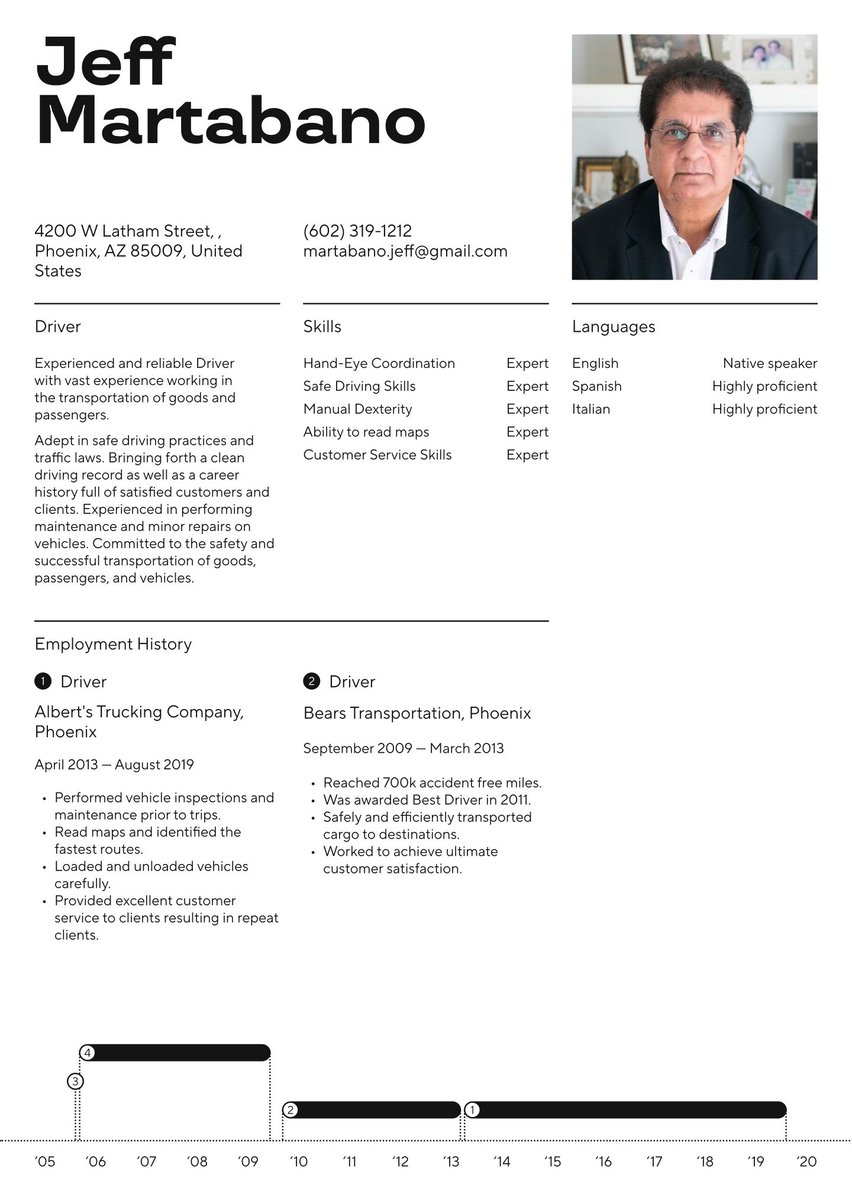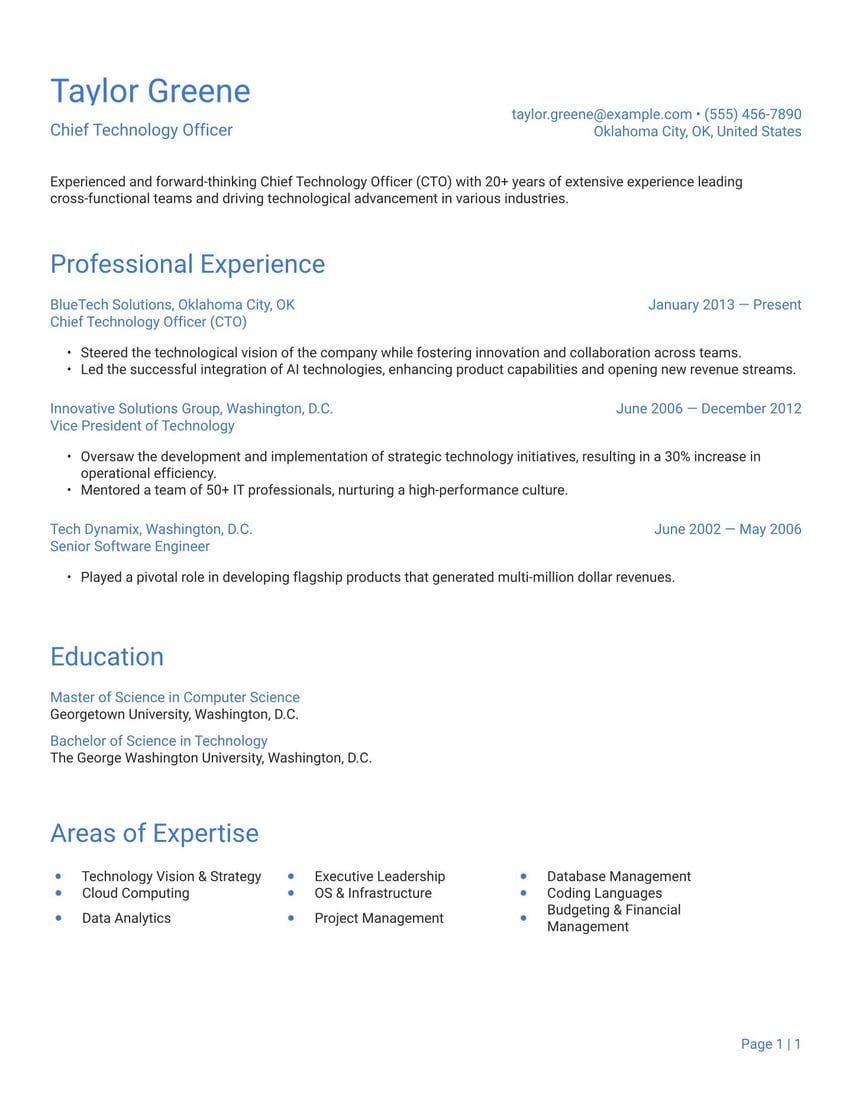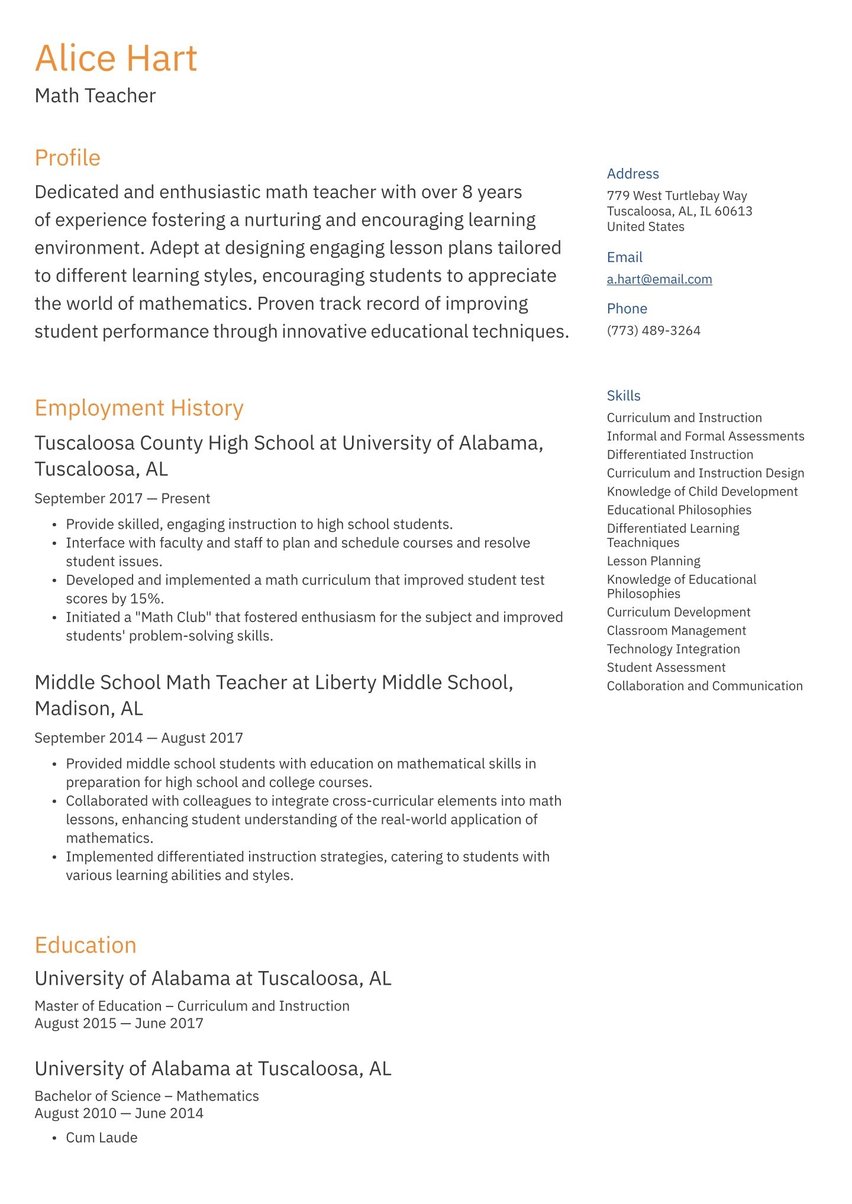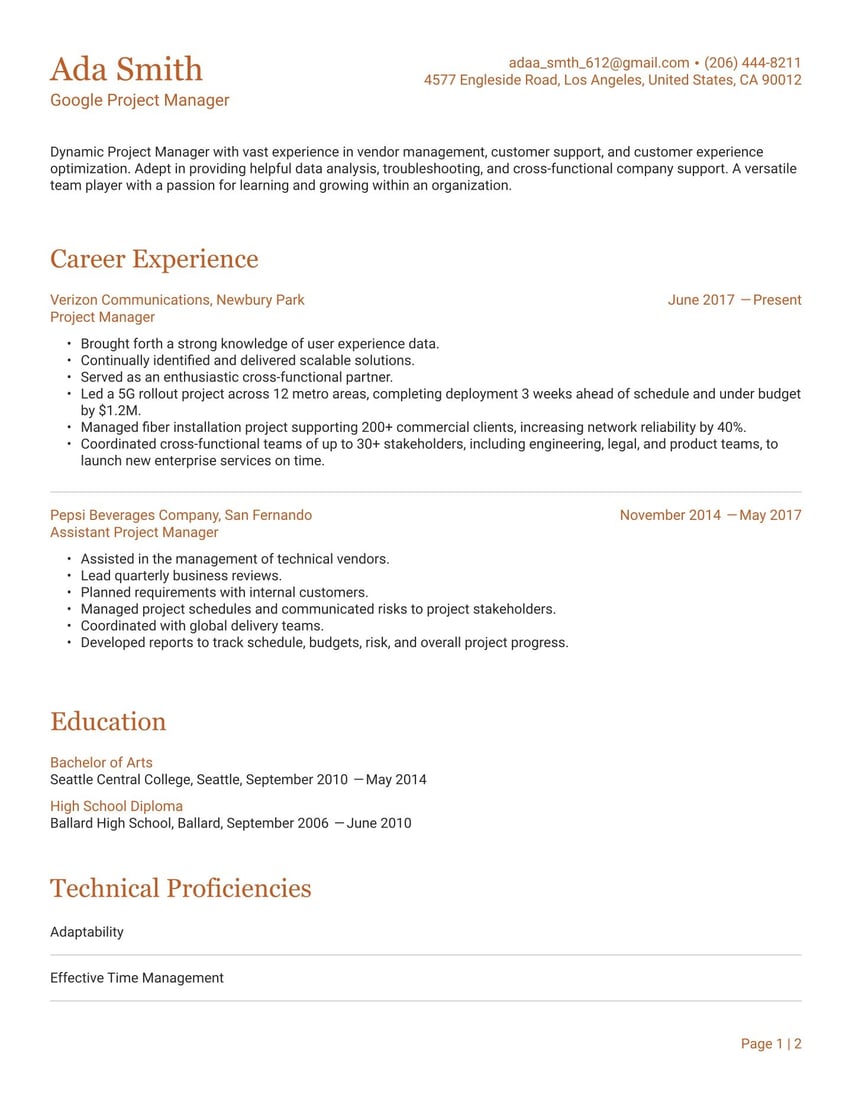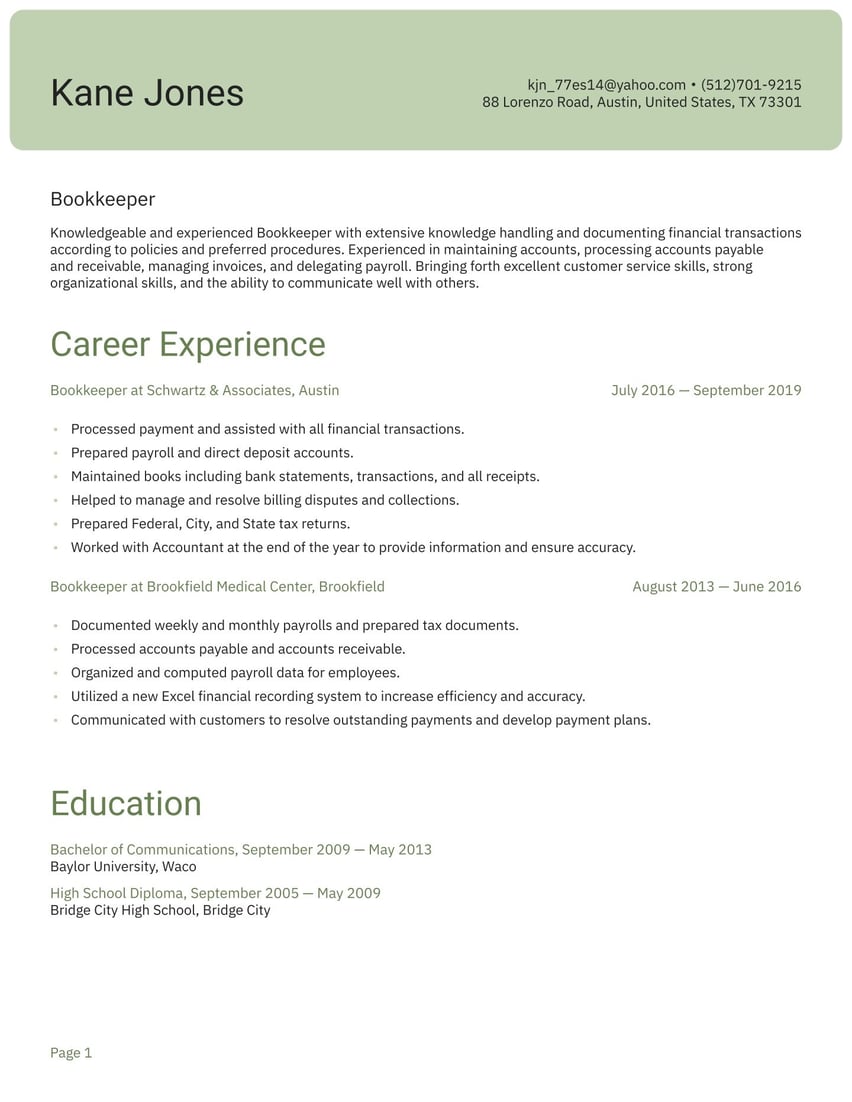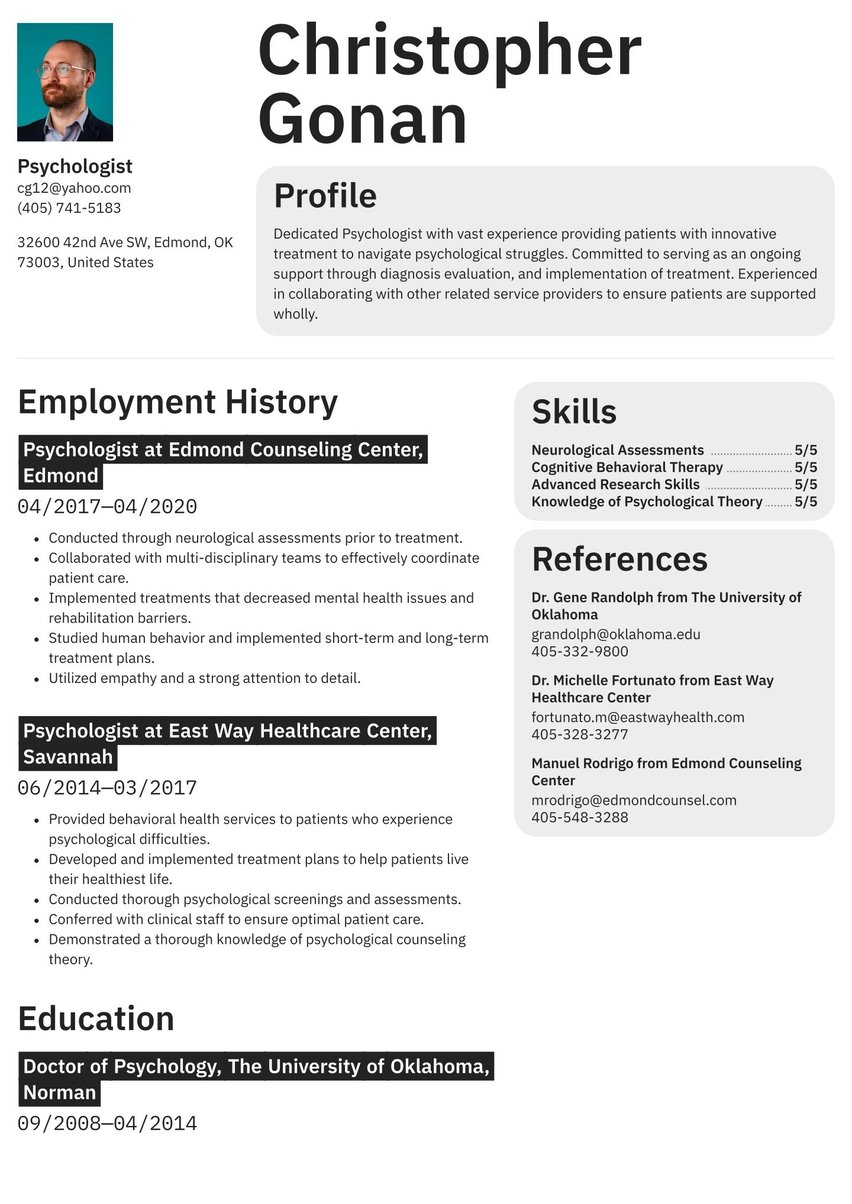Motivated and hardworking Entry Level Software Engineer ready to become a vital member of the next team I join. Working with a strong understanding of data structures and algorithms and complex problem solving skills.
07/2018 - present, Entry Level Software Engineer, Raytex, Charleston
- Collaborate with 10 team members to take ownership of the full development cycle.
- Partner with clients and developers to design, build, and roll out solutions.
- Utilize frameworks and languages like Java, JavaScript, and HTML to develop new applications and modify 25 existing applications.
- Work with project teams to successfully deliver new or modified functionalities.
- Recently helped to decrease software testing time by 20%.
- Attend all meetings with the software development team and senior leadership to discuss design strategy and delivery goals.
- Work tirelessly to develop features that help organizations be more effective and productive in their communication.
09/2014 - 05/2018, Bachelor of Science in Software Engineering, University of South Carolina, Columbia, SC
- Graduated summa cum laude.
- English
- Spanish
- Italian
- Database Management
- Python
- Java
- SQL
- Complex Problem Solving
- Creative Thinking
An entry-level job is the starting point of virtually any career. These positions allow you to transition into the workforce after you’ve completed a college degree or another form of education.
Entry-Level resume examples by experience level
But here’s the truth about entry-level jobs: they’re becoming increasingly competitive. As employers look to hire candidates with the right blend of skills and culture fit, they often ask for a level of experience once thought to be above the typical entry-level position.
So how do you stand out and win one of these coveted roles? By creating an exceptional resume that highlights the strengths you do have.
This entry-level resume example and guide is designed to walk you through the process.
Resume guide for an entry-level resume
Accelerate success with Resume.io. Our guides and resume examples cover over 500 professions, and our resume builder makes creating a compelling resume easier than ever.
This resume guide and corresponding entry-level resume example will cover the following:
- How to write an entry-level resume
- Choosing the right resume format for entry-level jobs
- How to add your contact information
- Using summaries
- Adding your experience
- Listing education and relevant experience
- Picking the right resume design/layout
- What the entry-level job market looks like, and what salary you can expect
How to write an entry-level job resume
The very first step in writing your entry-level resume is understanding what sections to include. Your resume should contain the following elements:
- The resume header
- The resume summary (aka profile or personal statement)
- The employment history section
- The resume skills section
- The education section
Even if you have limited experience, your entry-level job resume should be crafted to highlight your unique traits and the fresh perspective you can bring to the workplace.
If you’re a college graduate, your degree is no longer enough to get your foot in the door. You’ll also need to highlight a variety of internships, activities, and industry-related experiences that show you’re a motivated candidate ready to dive into your field.
While writing your entry-level resume, consider this winning formula:
- Employers are now more interested in accomplishments than responsibilities. Whether it was a job, internship, or academic activity, make sure your resume mentions concrete achievements as opposed to simple duties.
- Your resume should be tailored to each employer you apply to. Customizing your resume means updating the skills and employment history bullet points to match the needs of the company, and also including the employer's name and the job title in your professional summary.
- Make sure your application sends a message of professionalism through the layout and formatting. When submitting online, optimize your resume with appropriate keywords so it won’t be filtered out by ATS screening software. Consider using an ATS resume template.
Optimize for the ATS
If you’re a recent grad, you may not be aware that a human hiring manager won’t be the first “person” to read your resume. Virtually all medium and large companies now use ATS recruitment software built into online hiring portals to screen and evaluate candidates. ATS stands for Applicant Tracking Systems.
These algorithms scan resumes for keywords—usually programmed in from the job description. Only the highest-ranking resumes pass through to be reviewed by the hiring manager while the rest get filtered out.
Luckily, there are a few steps you can take to increase your chances of making it past this hurdle:
- Make sure to read the job description closely and highlight any duties or skills that are relevant to the employer.
- Place these “keywords” throughout your resume where appropriate for your skills and experience.
- Use the employer’s exact language to ensure that the ATS picks up the keywords you’ve included.
- Never try to cheat the ATS by adding excessive keywords or lying about your experience—the hiring manager will find out soon enough!
Choosing the right resume format for entry-level jobs
Choosing the right resume format for entry-level jobs can be tricky. You may not have a ton of experience to show, yet you still want to appear competitive and motivated in the eyes of the hiring manager.
If you’ve completed at least three internships, jobs, or other semi-professional experiences, we recommend that you stick with the reverse chronological resume format. This format is focused primarily on the employment history section, listed in reverse chronological order, and allows you to expand on your academic and professional experiences up to this point.
This is the format you will find in our adaptable entry-level resume example because it’s the structure that most hiring managers expect to see from professional candidates.
If you’re still a student or have virtually no experience, you may opt for the functional format. This format focuses on skills right at the top of the page and may include a very short employment history section, or no employment history section at all. A combination, or hybrid resume format, allows you to emphasize your skills while still showing a bit of previous work experience.
Include your contact information
Your contact information is an extremely important part of your resume, which is why it’s almost always placed at the top of the resume in an attractive and eye-catching header section.
The hiring manager should be able to find your basic details in order to set up an interview. Here is some of the information to include:
- Full name & title. List your first and last name and include the name of the role from the job description.
- Professional email address. Use a clean format like firstname.lastname@gmail.com. Don’t use a quirky, unprofessional email address or an .edu even if you are a student.
- Phone number. List a number where you can be easily contacted and make sure to set up a professional voicemail greeting.
- Location. Nowadays it is only necessary to list your city and state. You can also add 'Willing to Relocate' here if applicable.
- LinkedIn. Even as a student, you should have a LinkedIn profile that is active, relevant, and shows your professional experience. Make sure to create a custom URL and add it to the top of your resume.
If applying in the U.S., Canada, or the U.K., don’t include:
- Date of birth: Not necessary and could potentially lead to age discrimination.
- Personal details: Marital status, social security number, passport number, etc.
You may want to adjust your header formatting based on the company you are applying to. Our adaptable entry-level resume sample can help you get started with creating an effective header.\
Jamie Brown
Research Assistant
090-080-0000
j_brown@gmail.com
Jamie Brown
Entry-level jobseeker
090-080-0000
j_brown@campusmail.edu
Make use of a summary
Your resume summary is like the written version of your elevator pitch. These 3-4 lines at the top of the page are meant to catch the hiring manager’s attention and give them just enough information about your skills and experience to make them want to read the rest of your resume.
Here’s how to craft a great summary:
- Start with a few adjectives that describe your most impressive personality traits or amount of experience.
- Use action verbs in the simple past or present tense to talk about your accomplishments.
- Add numbers and statistics to quantify your successes and provide concrete details where possible.
- Mention key skills or educational requirements listed in the job description.
- Include the company name and the job title you’re applying for to add a personal touch.
Remember, your summary (also sometimes called a profile) should be concise and should allow the hiring manager to draw an overarching conclusion about why you might be a better choice than other entry-level candidates with the same degree.
Make sure to match the tone with that of your industry, and show off a bit of professional personality if appropriate.
Need inspiration for your summary? Check out our related resumes:
You can find adaptable entry-level resume example summaries below:
Tech-savvy recent graduate with a degree in computer science and a passion for problem-solving and innovation. Proficient in programming languages such as Python, Java, and C++, with hands-on experience in software development and debugging. Won first place in 2024 Bay Area Hackathon. Strong analytical skills combined with a collaborative mindset, eager to contribute to the dynamic team environment as a software developer at Google.
Recent marketing graduate with a passion for leveraging social media platforms and digital marketing strategies to drive brand awareness and engagement. Skilled in market research, content creation, and campaign management. Achieved 30% follower growth for Instagram account of previous internship. A creative thinker with a strong analytical mindset, seeking an opportunity to bring fresh ideas to the HarperCollins team in a junior marketing specialist role.
Energetic and results-driven sales enthusiast with excellent communication and interpersonal skills. Recent graduate with a background in business administration and a proven ability to build rapport with clients and prospects. Thrives in fast-paced environments and eager to learn and grow within a sales role. Committed to exceeding sales targets and delivering exceptional customer service to drive revenue growth.
Outline your entry-level work experience
Even for entry-level positions, your work experience section will be a major focal point for hiring managers. Start this section by listing your current (or most recent) job or internship and working your way back to your first job.
As a general rule, stick with experience from your college years (or high school if you’re a recent high school grad). Make sure to list the job title (or internship title), employer name, dates worked, and location (add “remote” if applicable).
Under each subheading, aim to add 3-5 bullet points that describe your key duties and accomplishments in concise statements, omitting “I.” Be specific and use dynamic action verbs like led, initiated, orchestrated, developed, managed, or collaborated. We always recommend listing tangible outcomes as opposed to generic responsibilities.
Take a look at these bland bullet points:
- “Wrote blog articles for weekly student magazine”
- “Posted to social media accounts”
- “Worked with magazine staff to organize fundraising events”
Now check out these results-based points:
- “Pitched, reported, and edited 5+ weekly blogs for leading campus magazine”
- “Crafted and launched social media strategy resulting in 60% increase in followers”
- “Collaborated with magazine staff to fundraise 4K+ at monthly raffle events”
Take a look at the entry-level employment history resume sample below:
Business Analytics Intern at Google, New York
May 2023 - August 2023
- Built interactive Tableau dashboards to track and visualize campaign performance data
- Identified trends in customer behavior, gaining actionable insights that led to a 5% increase in campaign clickthrough rate
- Spearheaded documentation project to catalogue processes for accessing and analyzing data
Barista & Shift Supervisor at Starbucks, San Francisco
September 2021 - December 2022
- Promoted to supervisor within 6 months, quickly mastering inventory and staff management
- Improved inventory loss tracking with new processes, reducing waste by 8% per quarter
How to write an entry-level resume with no experience
Theoretically, you should be able to land an entry-level job even with no experience on your resume. However, the reality is a bit more complicated. Companies now ask for advanced degrees, years of experience, or proof of skills when hiring for entry-level roles.
The secret to writing an entry-level resume with no experience is to focus on the limited accomplishments you do have and show the hiring manager why you’re a motivated candidate who is eager to learn and contribute.
While landing an entry-level position without prior experience may require extra effort and persistence, it's certainly achievable with the right combination of skills, determination, and strategic job search tactics. Here are a few steps to take:
- Highlight transferable skills. Emphasize skills gained through education, extracurricular activities, volunteer work, or personal projects that are relevant to the job you're applying for. Transferable skills such as communication, problem-solving, teamwork, and time management are valued by employers because they are hard to teach but can be applied across a wide variety of positions.
- Tailor your resume and cover letter. Customize your resume and cover letter for each application, highlighting how your background, skills, and interests align with the requirements of the position. Your cover letter is especially useful in showcasing why you’re the right fit for the organization—even if your experience is limited.
- Networking. Here’s a secret: networking is the best way to land an entry-level job with no experience. Build relationships with professionals in your desired field through networking events, informational interviews, and online platforms like LinkedIn.
- Gain relevant certifications or training. Consider pursuing certifications, online courses, or workshops that enhance your skills and knowledge in your chosen field. Many online courses are free and give you valuable experience to place on your resume.
Include the relevant key skills that make you a great entry-level candidate
Your skills section might seem like just a simple list, but this section serves a key purpose in getting you past the ATS we mentioned earlier and also showing the hiring manager your interests and expertise at a glance.
Make sure to combine hard and soft skills to show that you’re a well-rounded candidate. Hard skills are technical proficiencies that are often industry-specific and are learned in courses or on the job.
However, soft skills are personal traits like motivation, communication, collaboration, and adaptability that are necessary across roles and industries. Depending on your field, employers may be more interested in hard skills than soft skills, or vice versa. Refer to the job description for an idea of what the hiring manager is looking for.
Here’s what the skills box looks like in our entry-level resume template.
- Documentation
- Excellent communication
- Budgeting and forecasting
- Data collection and analysis
- Understanding of business objectives
- Strong research ability
- Time management
- Organization Presentation
Detail your education & relevant certifications
The education section is an essential component of any entry-level resume. If you’re a recent grad, you may want to place this section above your employment history, while more experienced professionals should do the opposite.
List your degrees from most recent to oldest as you did for your work history. If you’ve completed a college degree, there’s no need to include your high school diploma. Add the degree name, school, dates attended, and location.
You can also offer 1-2 bullet points that showcase academic achievements like leadership positions, relevant coursework, or impressive grades.
Beyond formal education, this section is a great opportunity to list certifications or training relevant to your industry including training and certifications, publications, awards, or organizations. If you have multiple entries for any specific sub-category, you can consider making it a separate category.
Bachelor of Science in Business Analytics, University of San Francisco, San Francisco
September 2020 - May 2023
Pick the right resume layout and design for an entry-level resume
As an entry-level candidate, your layout and design help you be taken seriously by employers and make a positive first impression.
A good layout doesn’t need to be overly colorful or flashy, but can include one or two accent colors if appropriate for your job title or industry. Above all, make sure to focus on clean lines for separating sections, clear section titles, and an eye-catching and attractive header.
Just as we recommend tailoring the content of your resume for each application, you should do the same with your layout. Reformatting your whole resume can be tedious, which is why expertly designed resume templates are a great way to test out different styles while ensuring a professional look.
What type of salary you can expect in entry-level roles
It likely comes as no surprise that the salary for entry-level jobs varies widely based on industry, location, and employer.
Here are a few examples of annual salary information for some of the most common entry-level jobs in the U.S.:
- Entry-level software engineer: $72,679 to $87,153 via Salary.com
- Entry-level sales representative: $54,419 to $74,131 via Salary.com
- Entry-level customer service associate: $35,150 to $43,814 via Salary.com
- Entry-level HR coordinator: approximately $62,000 via Salary.com
- Entry-level graphic designer: approximately $60,000 via Salary.com
Entry-level resume text only example
Profile
Detail-oriented recent graduate with Bachelor’s in Business Analytics. Seeking to utilize strong analytical abilities, technical expertise in Tableau and SQL, and problem-solving skills to gain business insights as an Entry Level Business Analyst.
Employment history
Business Analytics Intern at Google, New York
May 2023 - August 2023
- Built interactive Tableau dashboards to track and visualize campaign performance data
- Identified trends in customer behavior, gaining actionable insights that led to a 5% increase in campaign clickthrough rate
- Spearheaded documentation project to catalogue processes for accessing and analyzing data
Barista & Shift Supervisor at Starbucks, San Francisco
September 2021 - December 2022
- Promoted to supervisor within 6 months, quickly mastering inventory and staff management
- Improved inventory loss tracking with new processes, reducing waste by 8% per quarter
Skills
- Documentation
- Excellent communication
- Budgeting and forecasting
- Data collection and analysis
- Understanding of business objectives
- Strong research ability
- Time management
- Organization Presentation
Education
Bachelor of Science in Business Analytics, University of San Francisco, San Francisco
September 2020 - May 2023
Key takeaways for building an entry-level resume
While entry-level candidates may not have extensive professional experience, crafting a resume that showcases motivation along with relevant internships, part-time jobs, volunteer work, or extracurricular activities is the key to demonstrating your capabilities and landing an entry-level job.
Make sure to focus on accomplishments and responsibilities that showcase your ability to contribute effectively in a professional setting.
A strong layout and presentation is also an important part of showing a hiring manager that you take the opportunity seriously. Our online resume builder allows you to quickly create an impressive application free from costly mistakes.


.jpg)

.jpg)





















